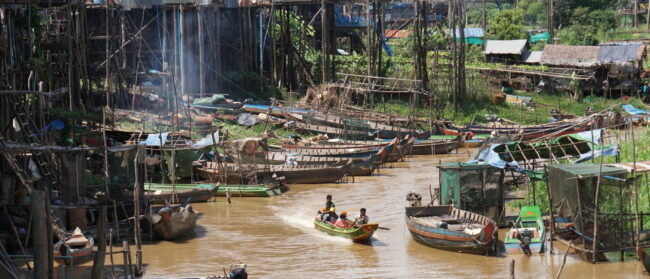Fishing crackdown disrupts Tonle Sap lives
Overfishing prompted by environmental degradation leads to police action that residents say compounds the woes of struggling communities on Cambodia’s largest lake
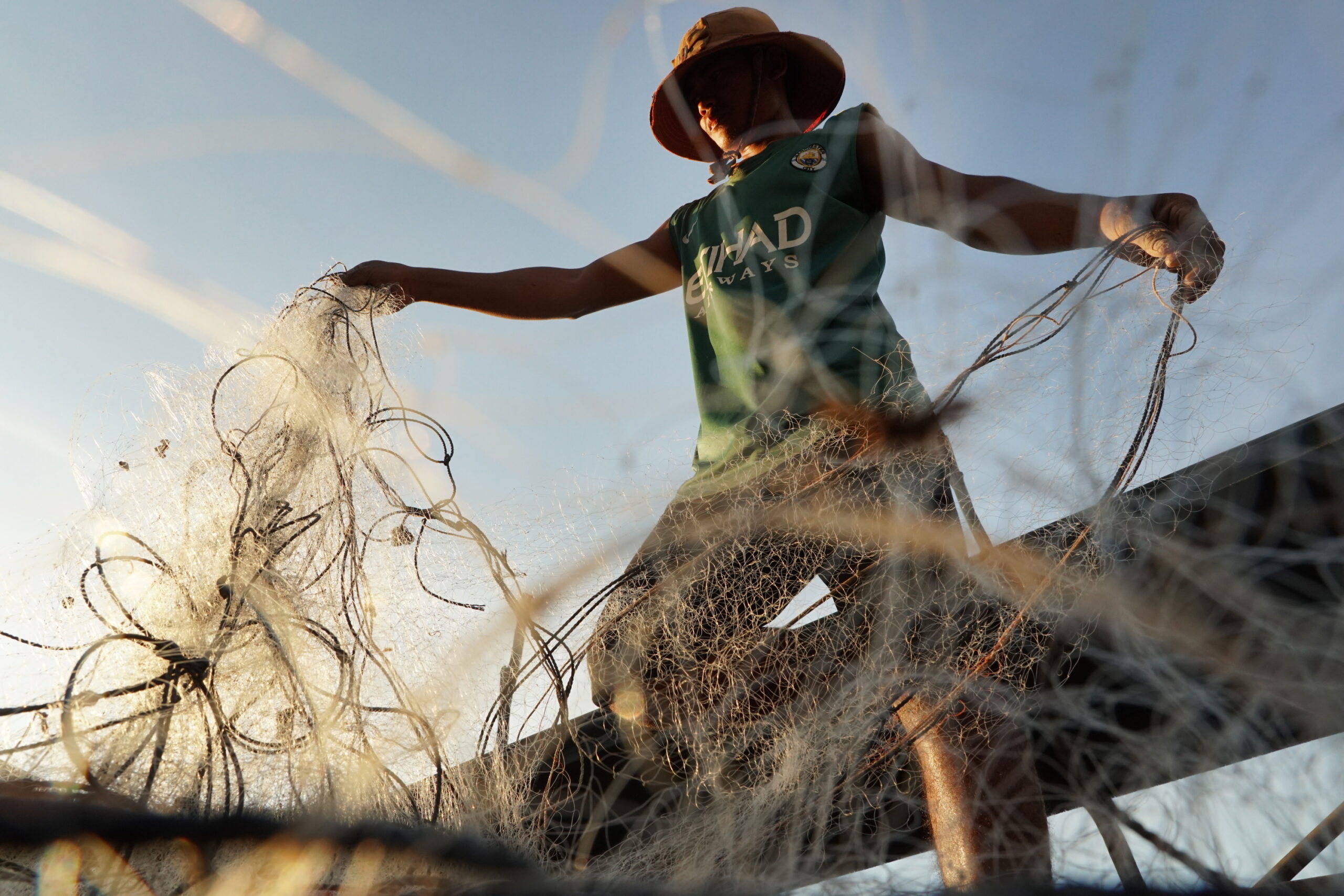
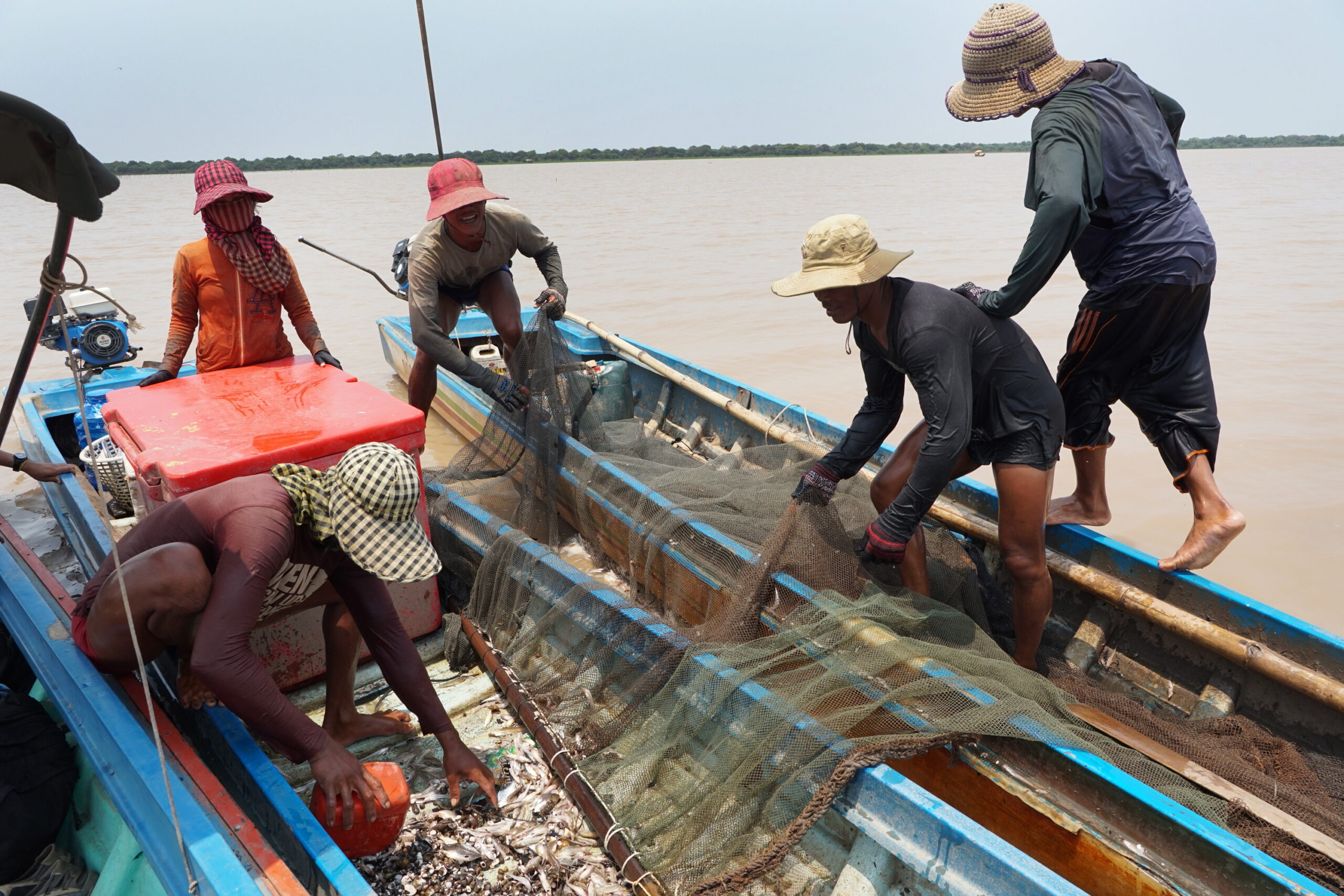
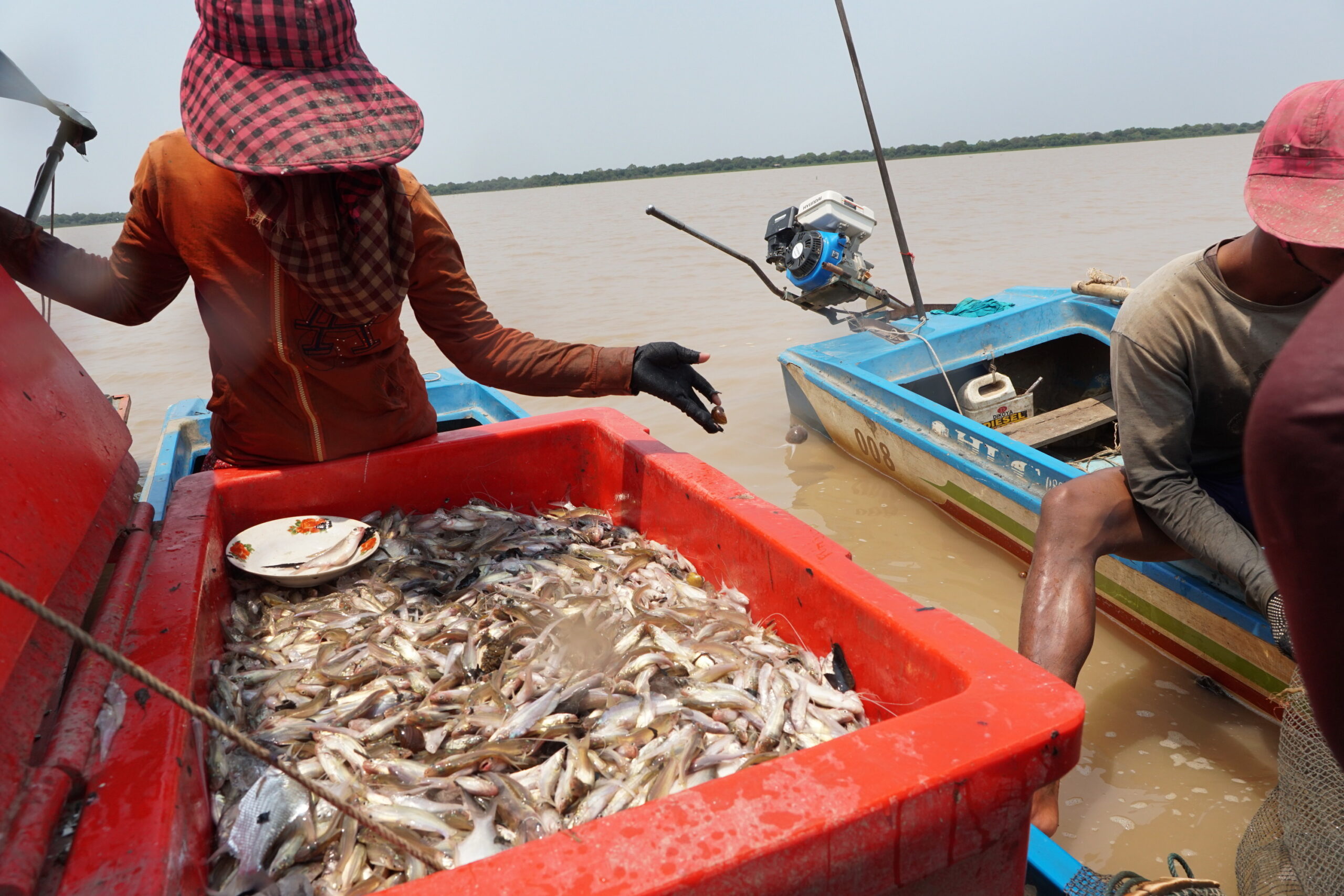
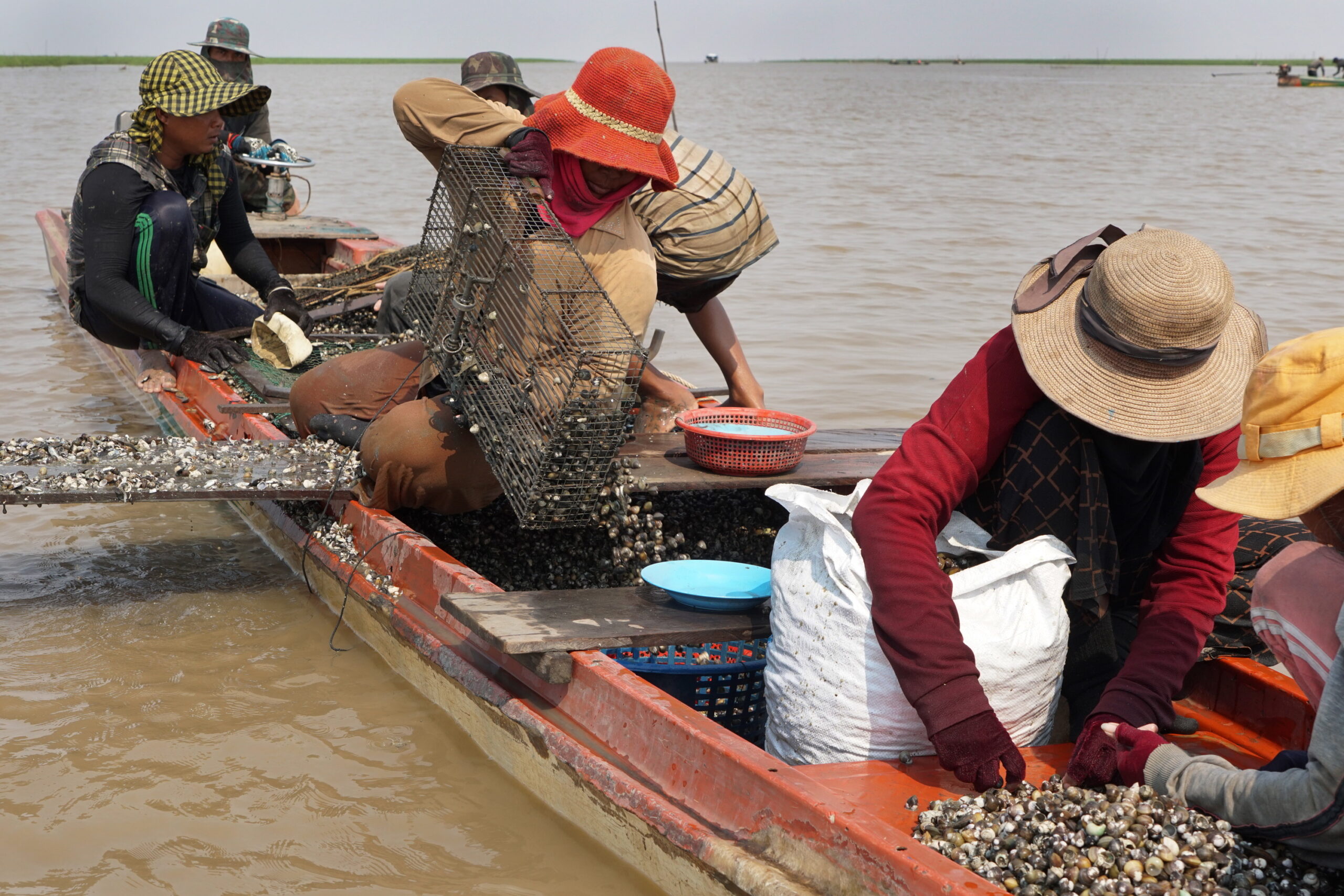
A fisherman mends his nets in Kompong Phluk. Near Prek Toal, fishermen load their catch from one boat to another. Women work sifting cockles from debris.
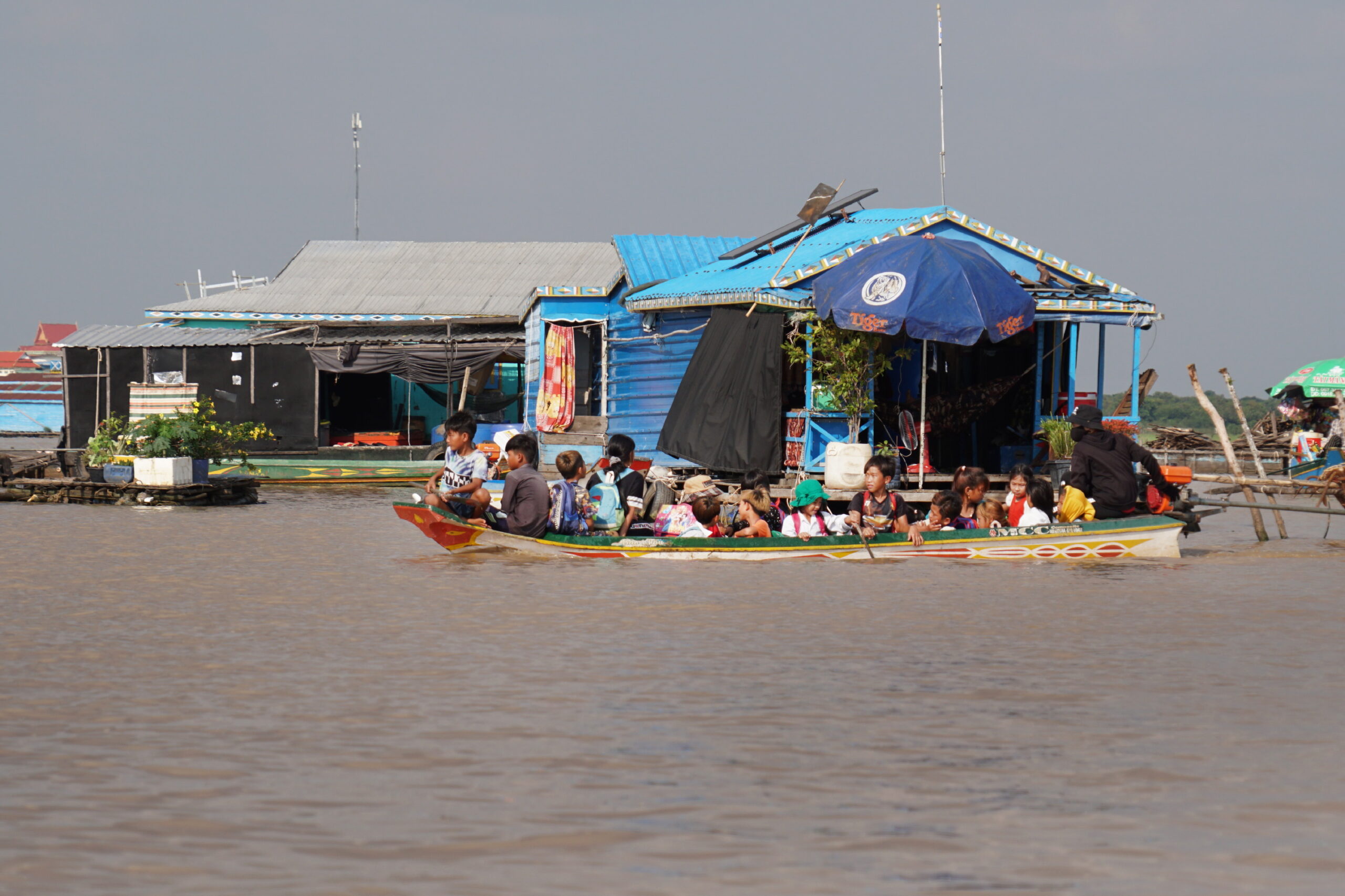
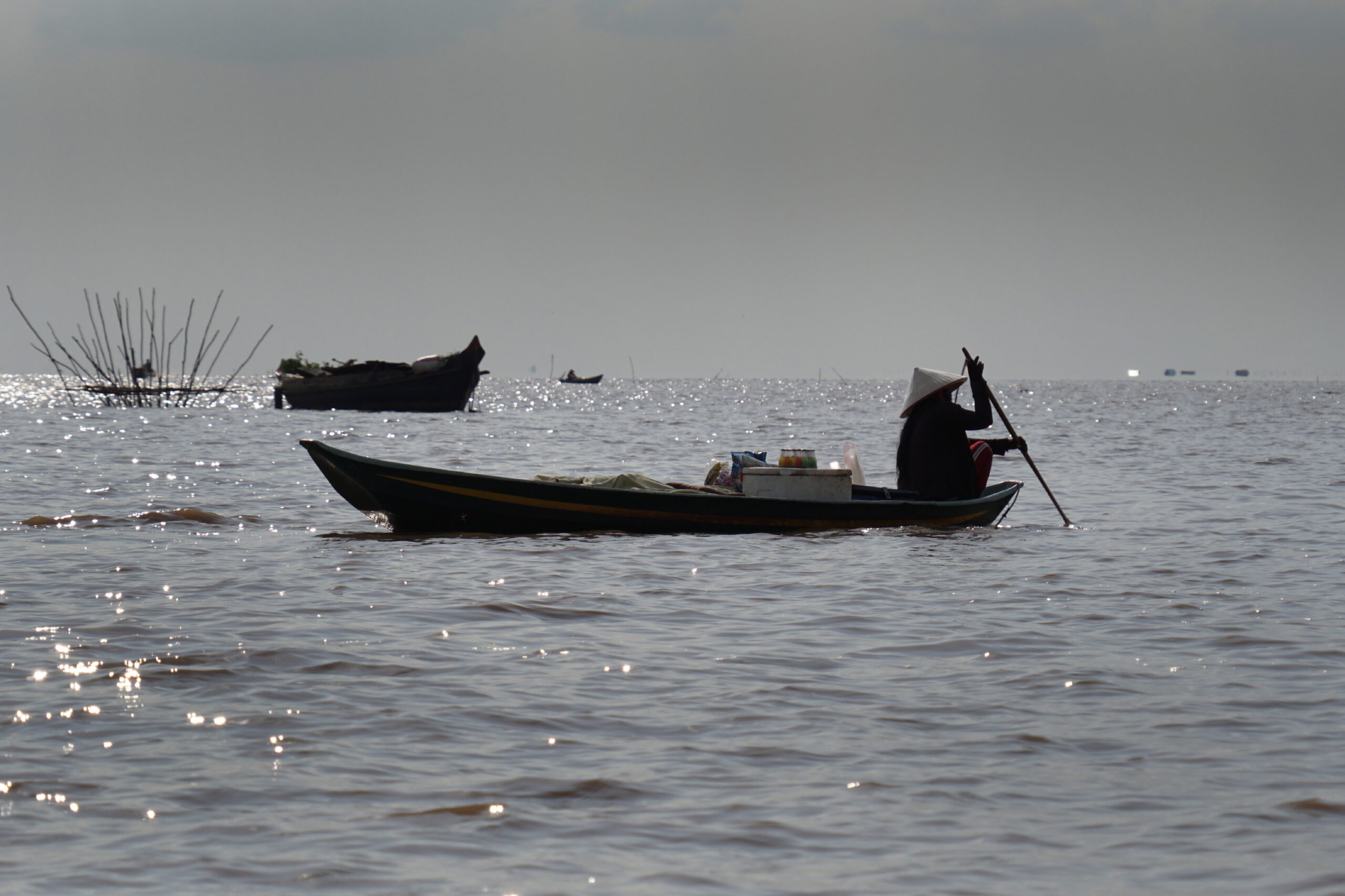
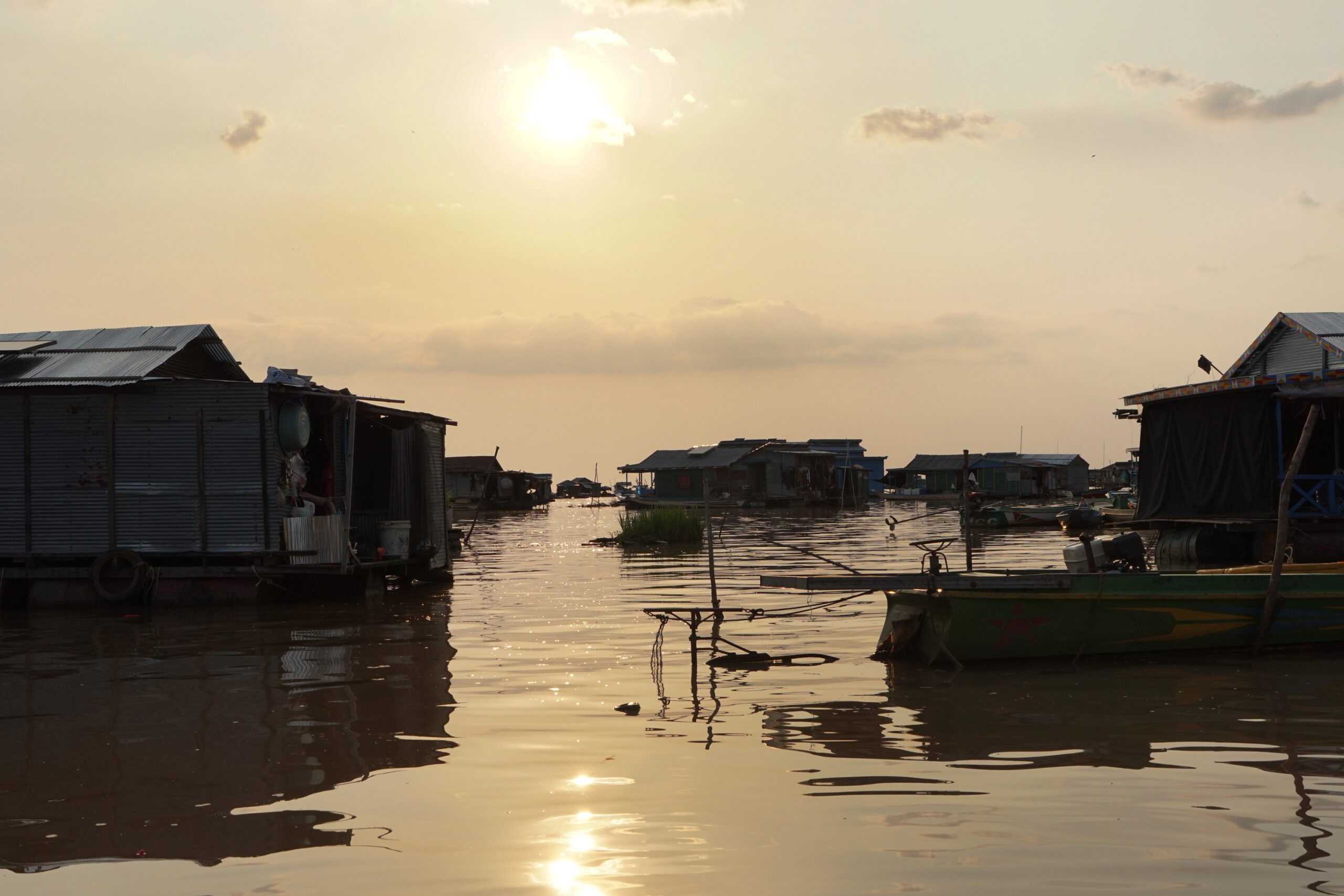
Kids head back home from school by boat-taxi. Sunset over Chong Khneas floating village, home to an ethnic Vietnamese community, where residents say the fishing crackdown has led dozens to flee in recent weeks.
Sitting in her two-room houseboat in the village of Chong Khneas, the walls papered over with Hello Kitty wallpaper and a green hammock strung up across the middle, Ngouy Foerng slowly rocked back and forth as she explained her situation.
She had just one rowboat to her name after authorities confiscated the family’s fishing boat in March.
“I don’t even know how to describe how it feels,” she said.
Foerng’s village of Chong Khneas appears on Tonle Sap Lake like a watery version of a desert city, sunlight reflecting off a crowd of bobbing metal rooftops tilted toward the sky.
The village has long been a centre of Cambodia’s ethnic Vietnamese community, many of whom survive without citizenship or the right to own property. In late March, authorities confiscated dozens of boats at a time in a crackdown on illegal fishing, prompting an accelerated wave of outward migration from the lake, villagers said.
“The authorities took everything,” Foerng said. “Even the small nets, they confiscated.”
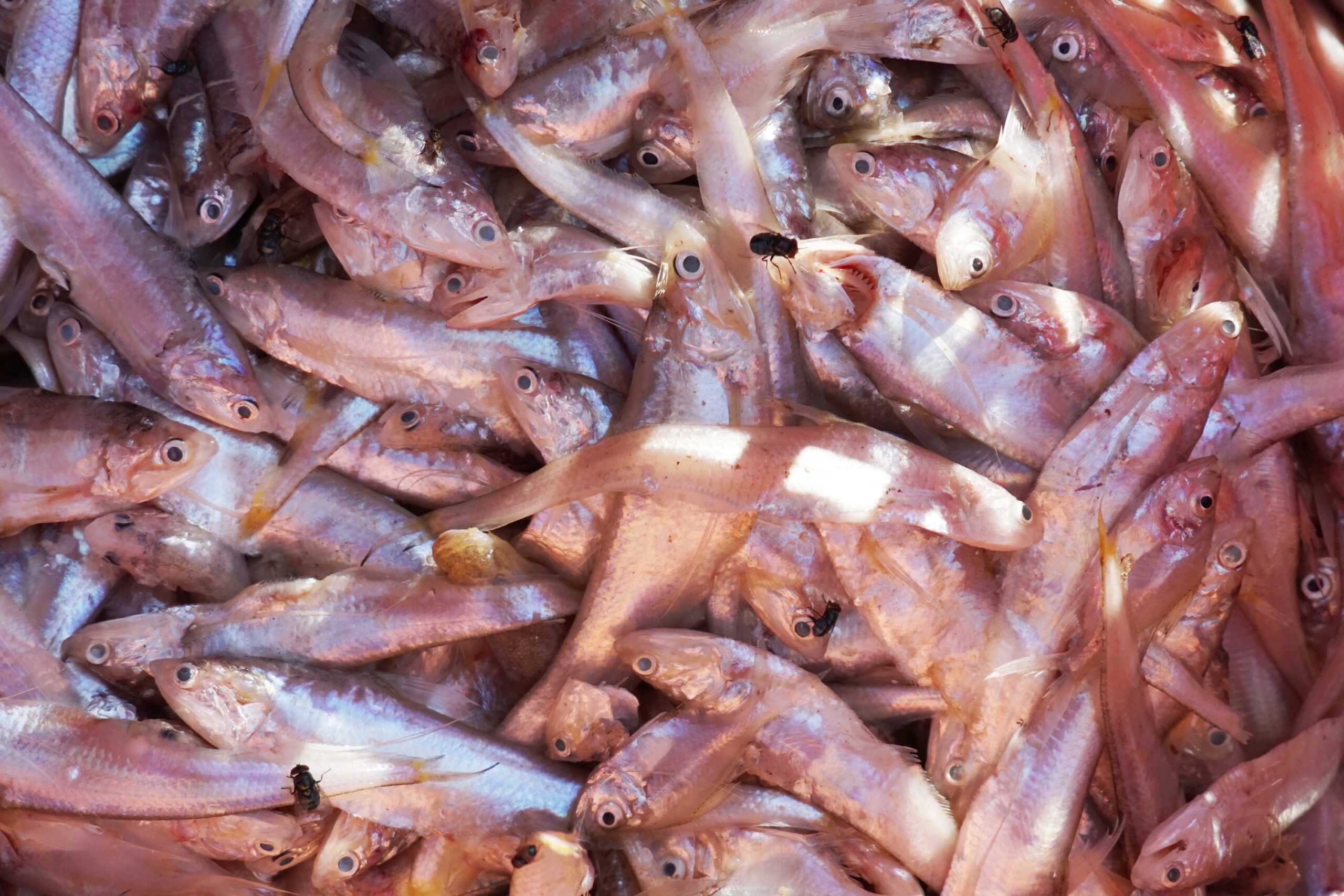
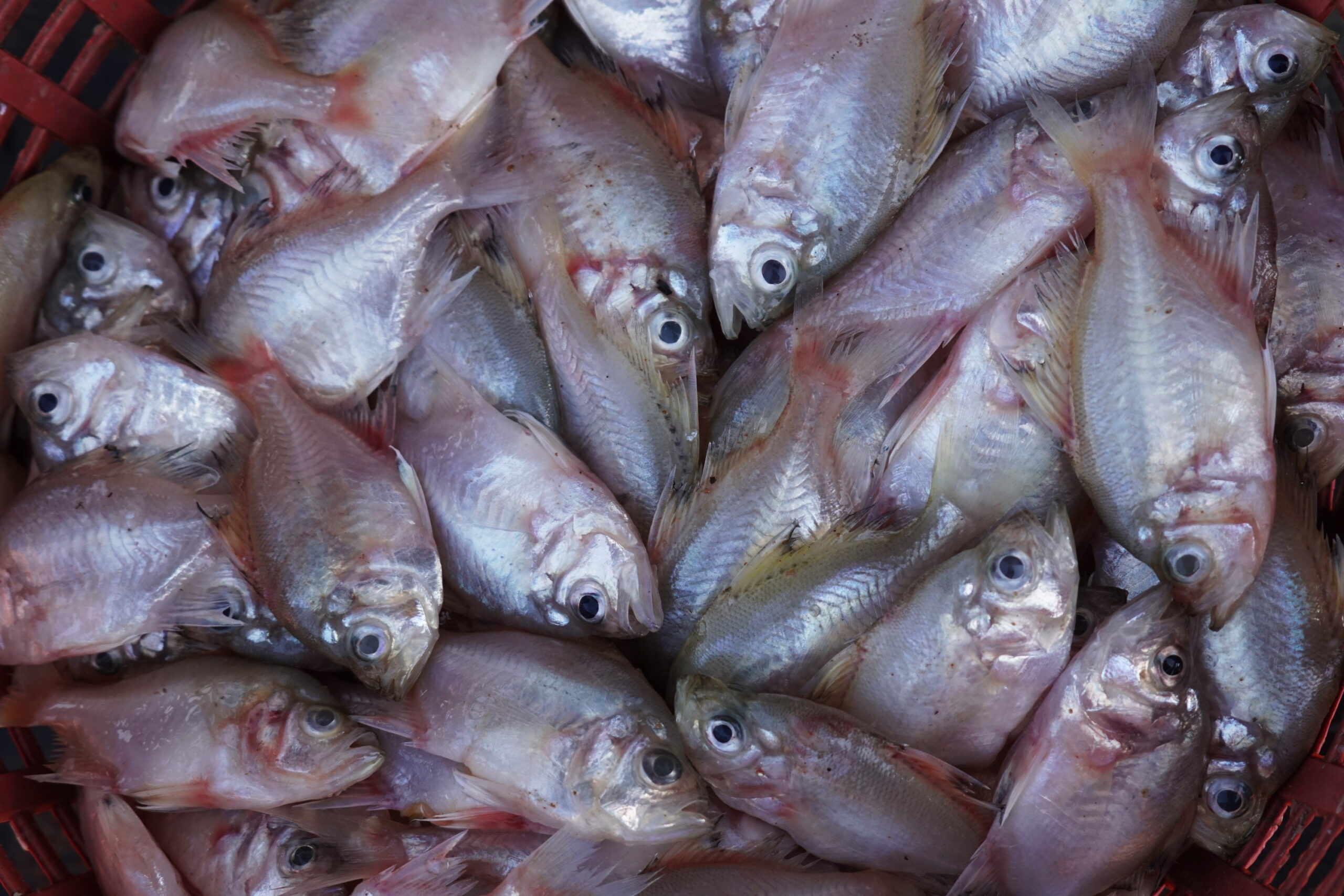
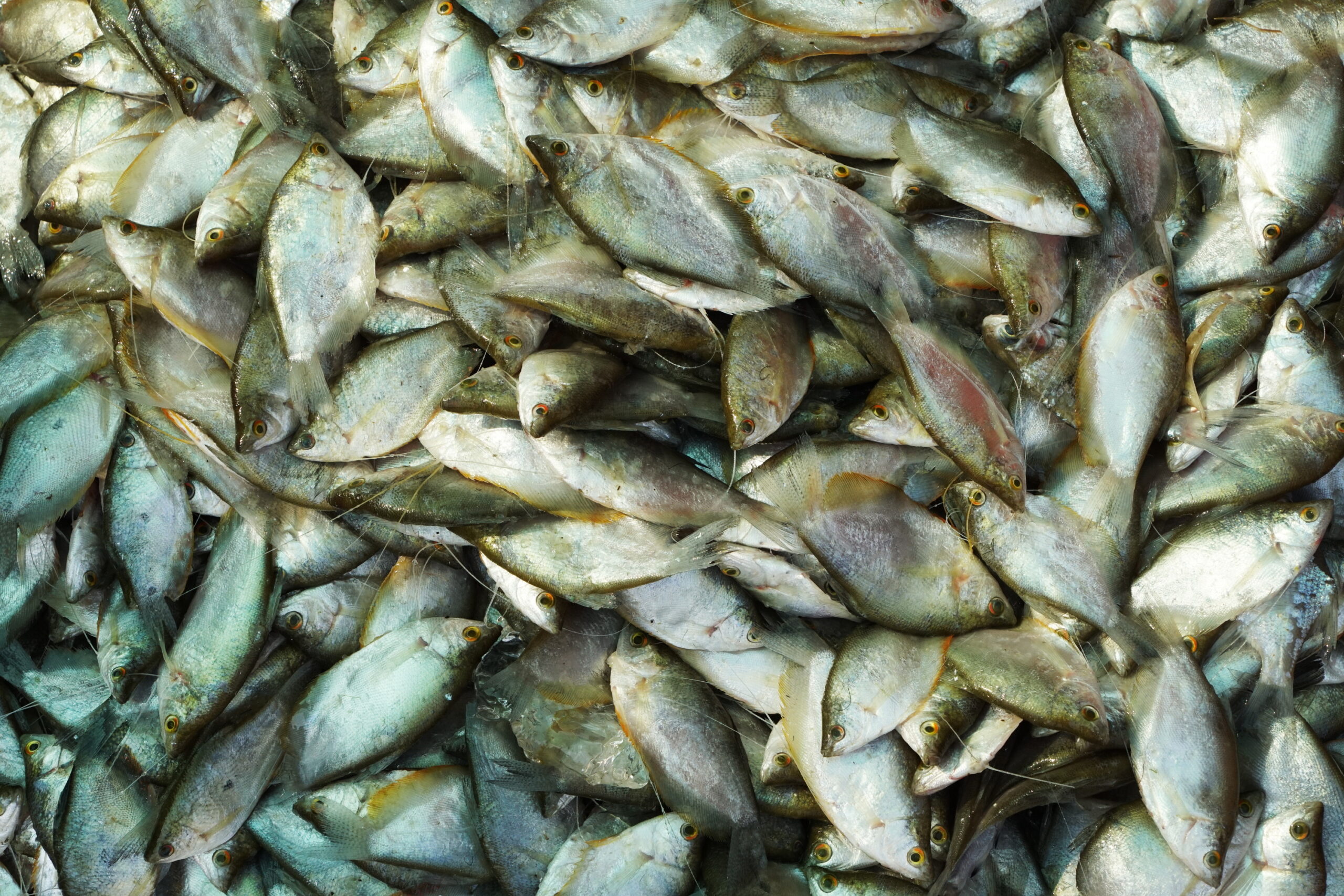
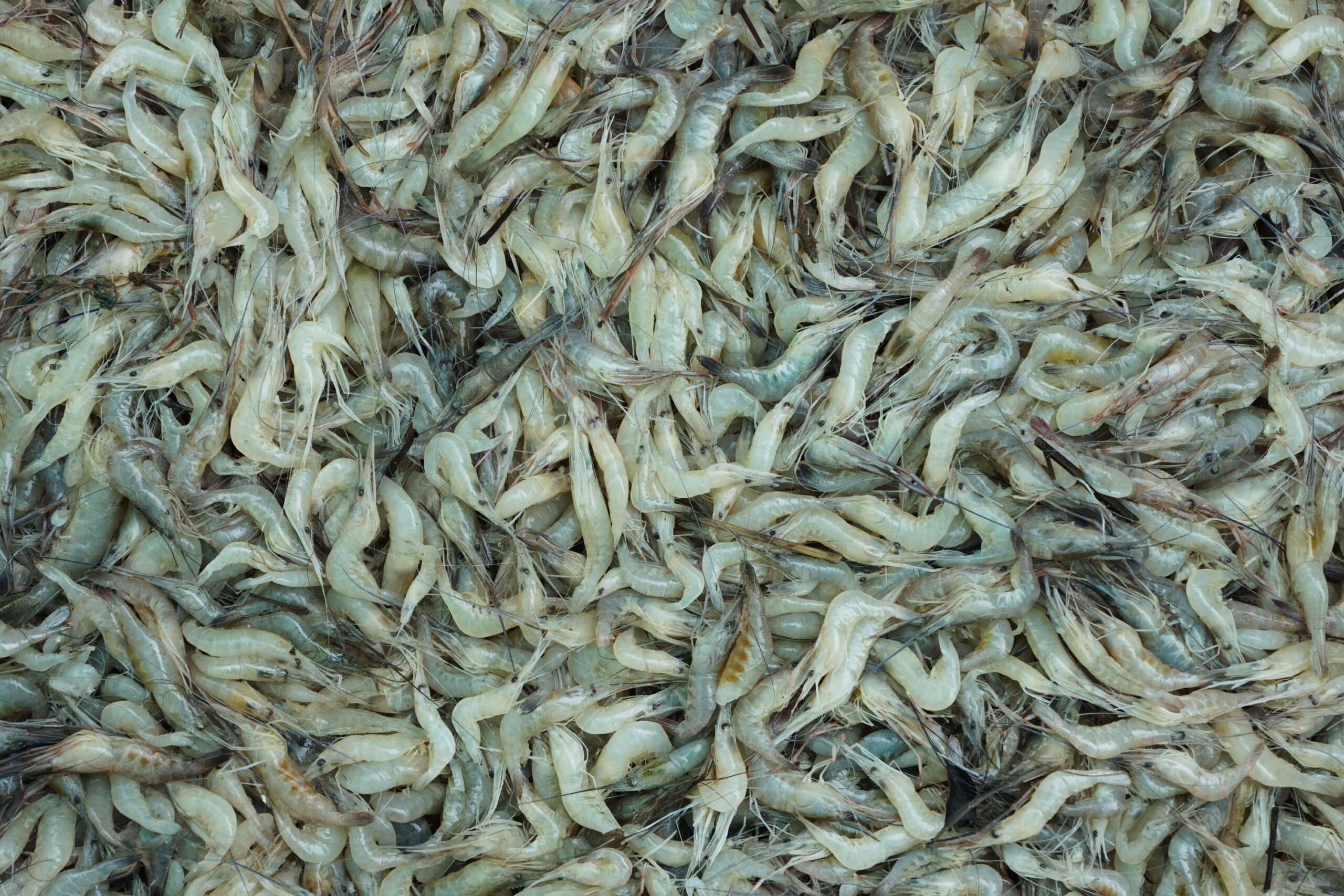
Piles of fish and shrimps caught around the Tonle Sap. A combination of climate change, overfishing, drought and dams have severely decreased the number of fish in recent years.
In mid-March, Prime Minister Hun Sen publicly ordered a sweeping end to illegal fishing in the Tonle Sap, where the use of electric prods, oversized nets and other illegal equipment has contributed to the ongoing devastation of the lake.
The effects have quickly reverberated across lakeside communities, causing financial distress and mixed emotions from both Khmer and ethnically Vietnamese Tonle Sap residents, many of whom agreed illegal fishing should be sanctioned but said the rules have been sporadically enforced.
A spokesperson for the Minister of Agriculture, Forestry and Fisheries did not respond to multiple requests for comment. According to his comments to The Phnom Penh Post, 44 people were referred to court as of 1 May, though it was unclear how much equipment was confiscated. A separate mid-April report from the provincial Battambang Fisheries Administration said its authorities arrested 38 and confiscated thousands of metres of illegal netting since the start of the year.
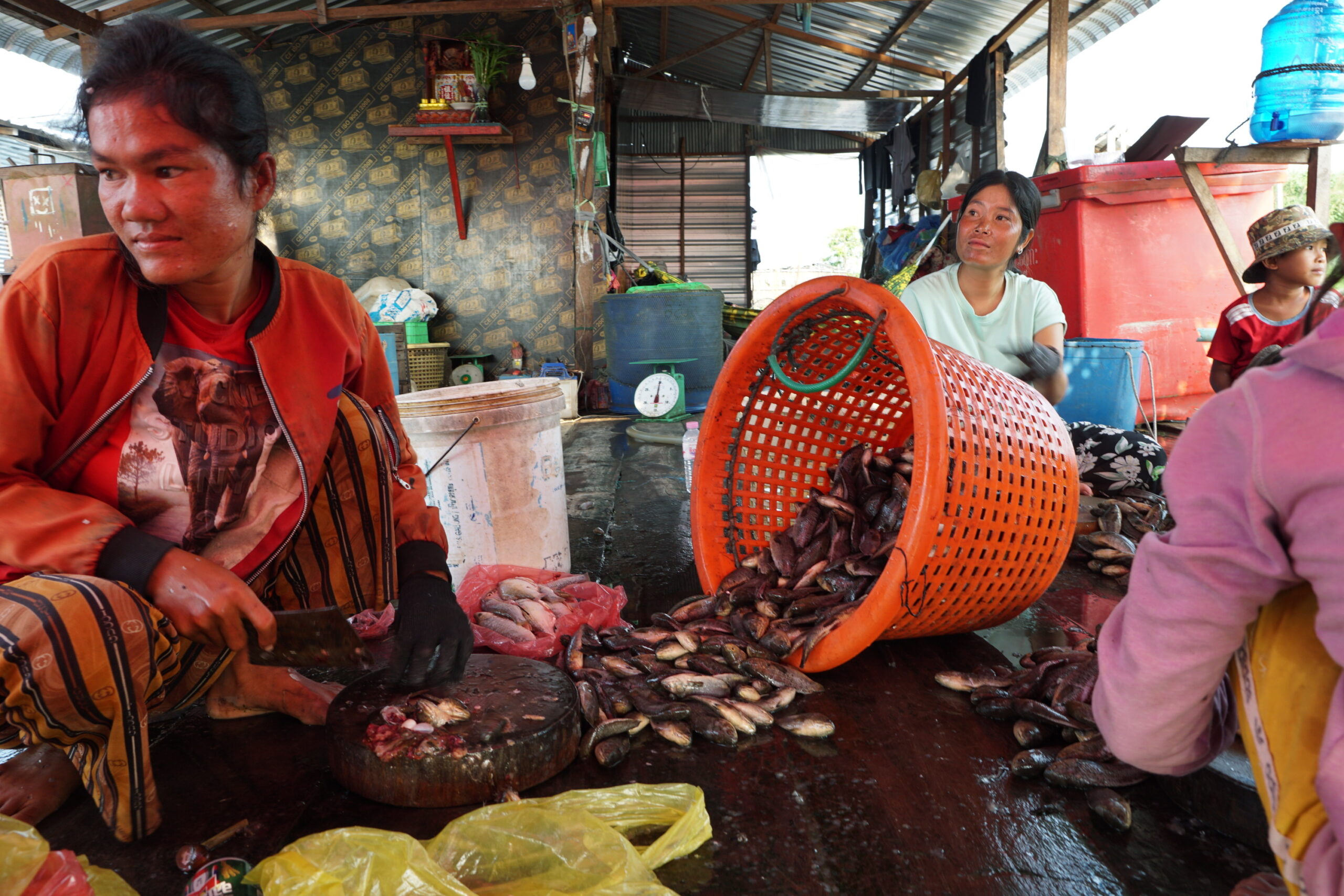
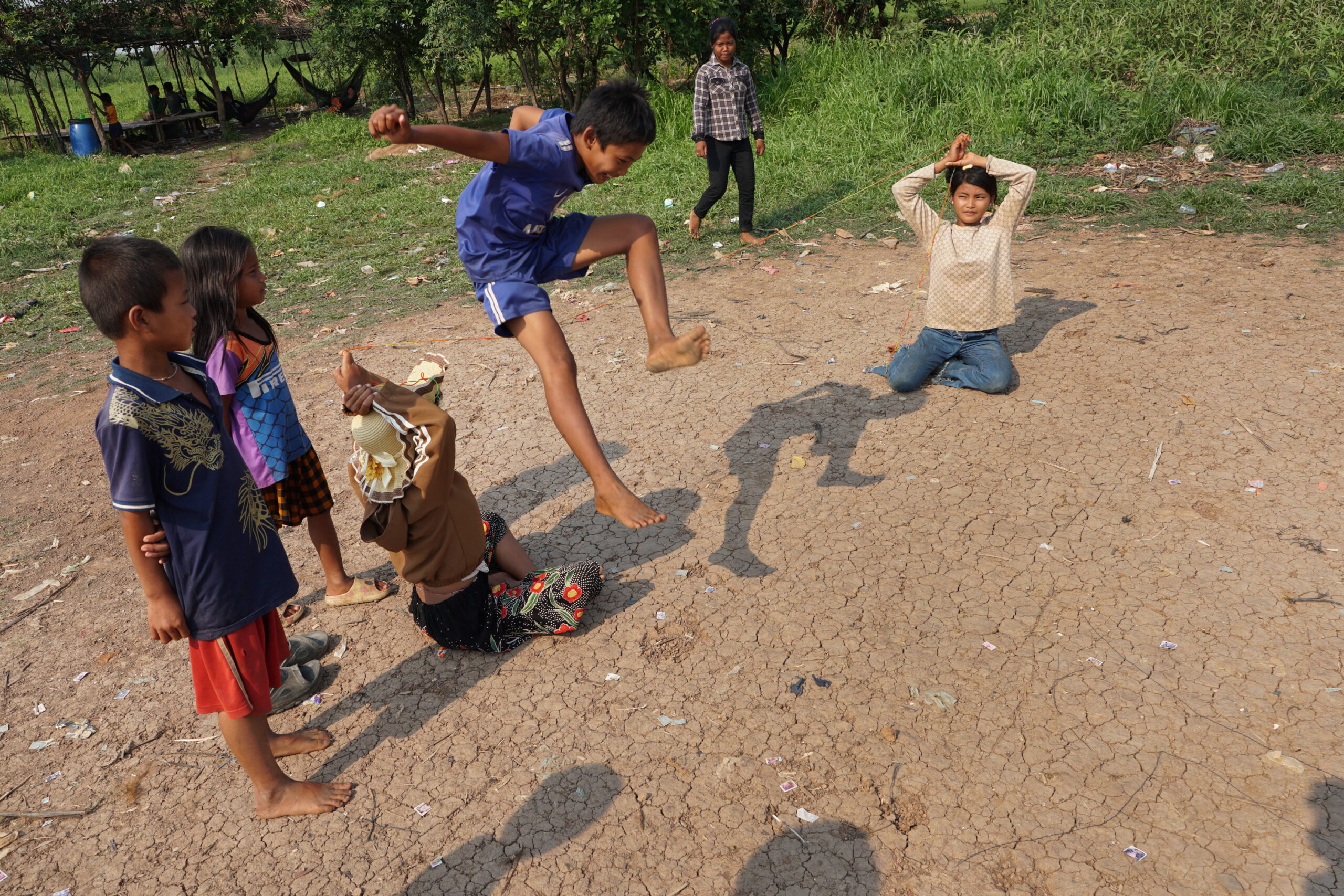
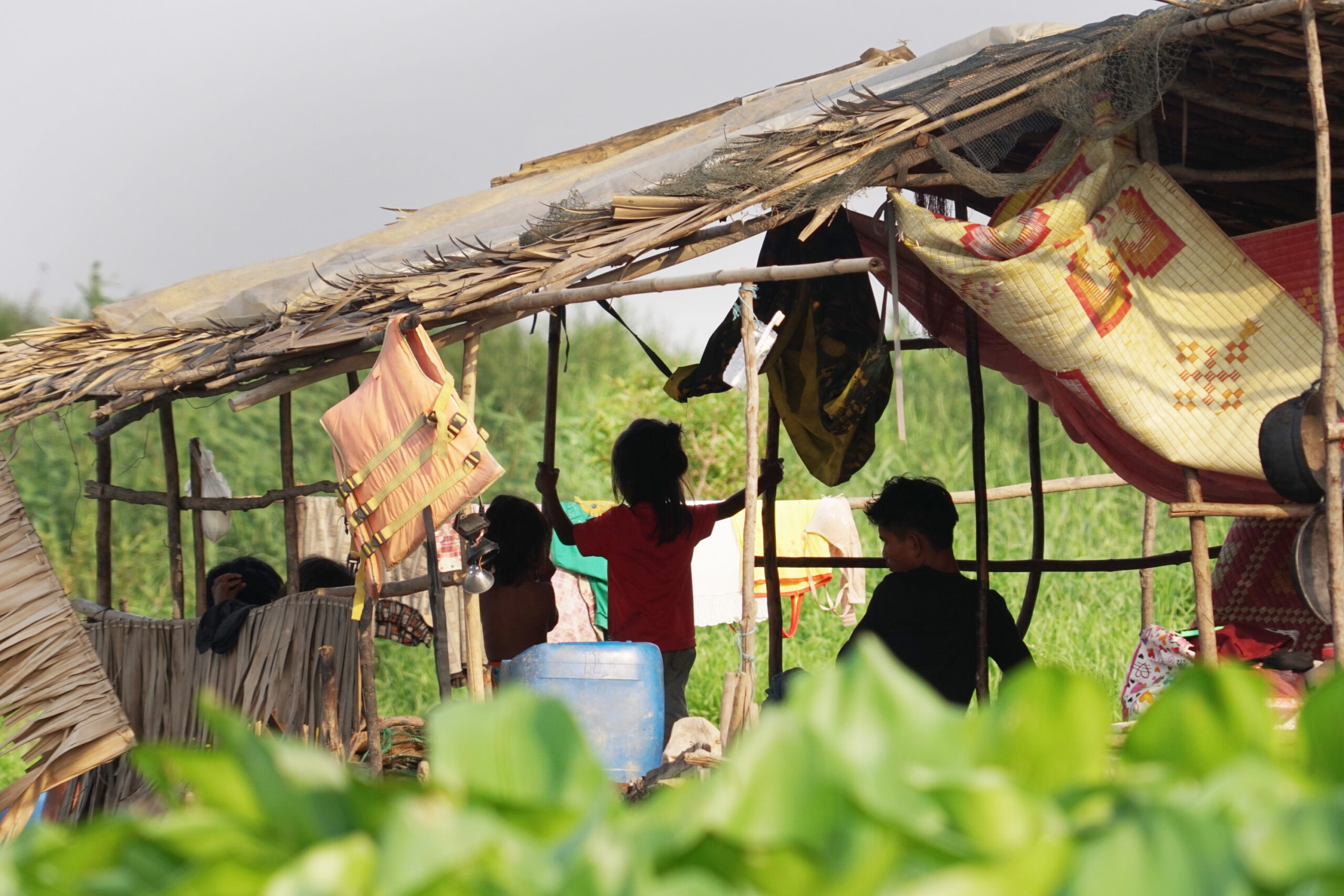
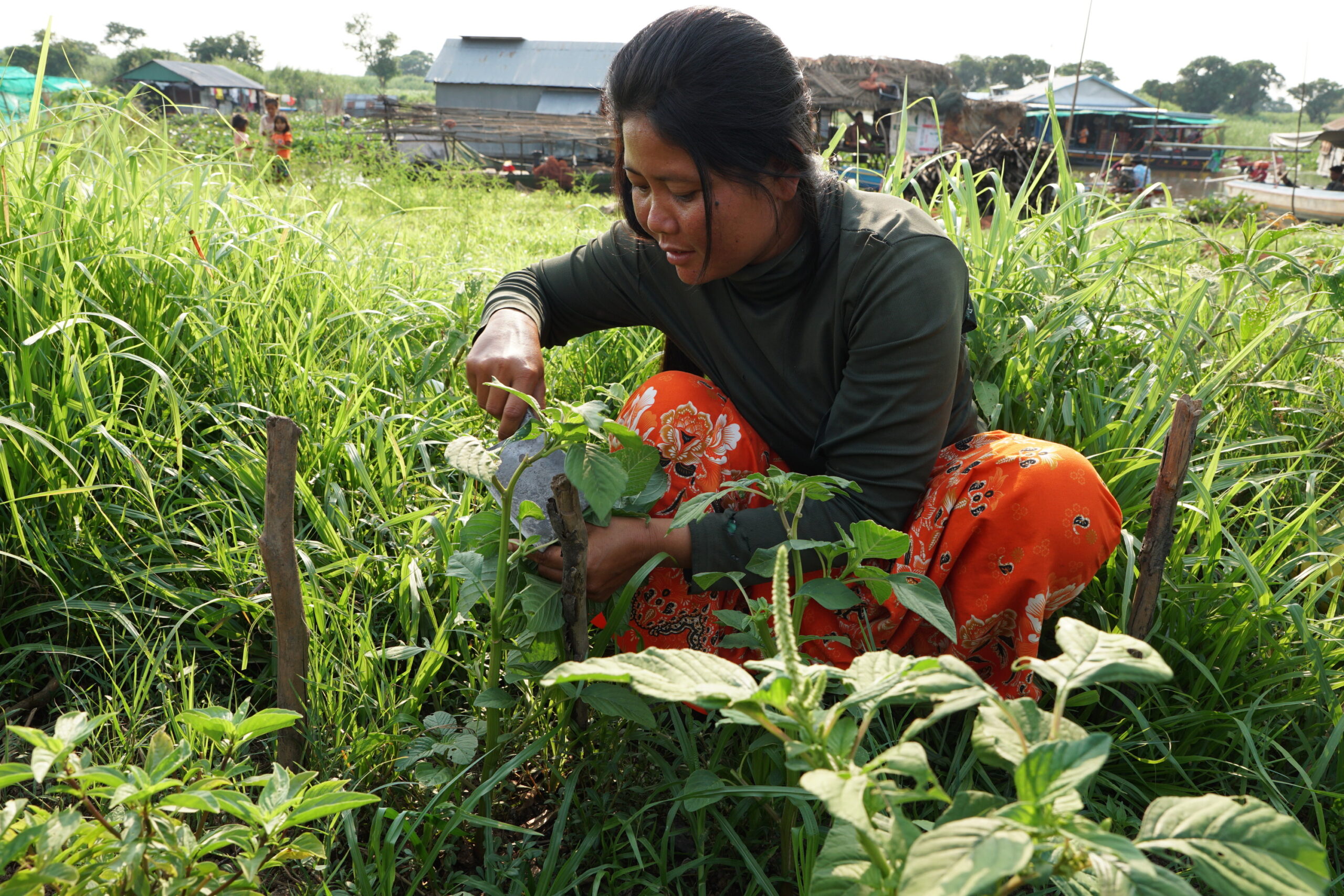
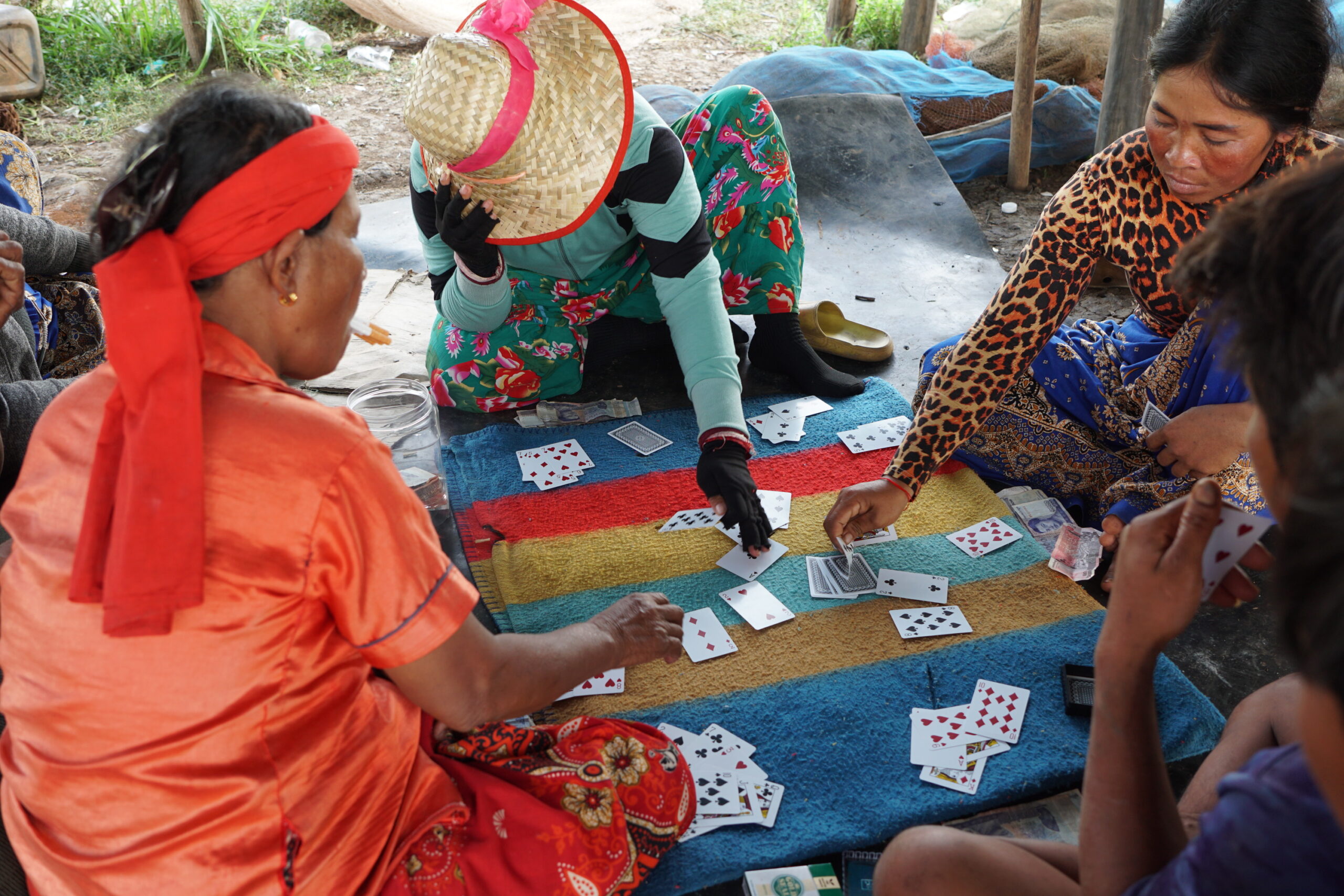
Ly Cheat, 24, (top) cleans and chops fish in the community of Kaoh Kaek. Elsewhere in the village, children play an elastic band game with several levels of difficulty. A woman digs near the riverbank, and a group of women escape the sun with a game of cards.
Stories of the crackdown have reverberated across the lake. In Kaoh Kaek, a 50-family inlet village on the riverbanks outside of Prek Toal, the eldest of Leang Lorn’s 10 children was released from jail earlier that morning, she explained in early April while standing with neighbours under a tarp.
Elsewhere in the village, the mood was relaxed in the days leading up to Khmer New Year celebrations. A group of women laughed over cards and kids played a balancing game hopping over elastic bands, alternating between legs. But Lorn was deeply unsettled.
Accused of gathering shellfish in a protected area in Kampong Thom province, Lorn said her 30-year-old son did not realise he had entered a plot of land safeguarded by the authorities and was released after a few hours of questioning. But the police warned his return would cost the family a fine of $50 to $70 – too much for her husband’s roughly $150 per month salary as a guard at the Prek Toal bird sanctuary.
She picked up a call from her son, holding out the phone for the neighbours to listen. She was very worried. “We have no money to support him for a fine,” Lorn said. “We don’t even have rice at home.”
In addition to the effects of sudden enforcement tactics, those living around the lake also experienced the fallout from other illegal activities they claim have received relatively little attention.
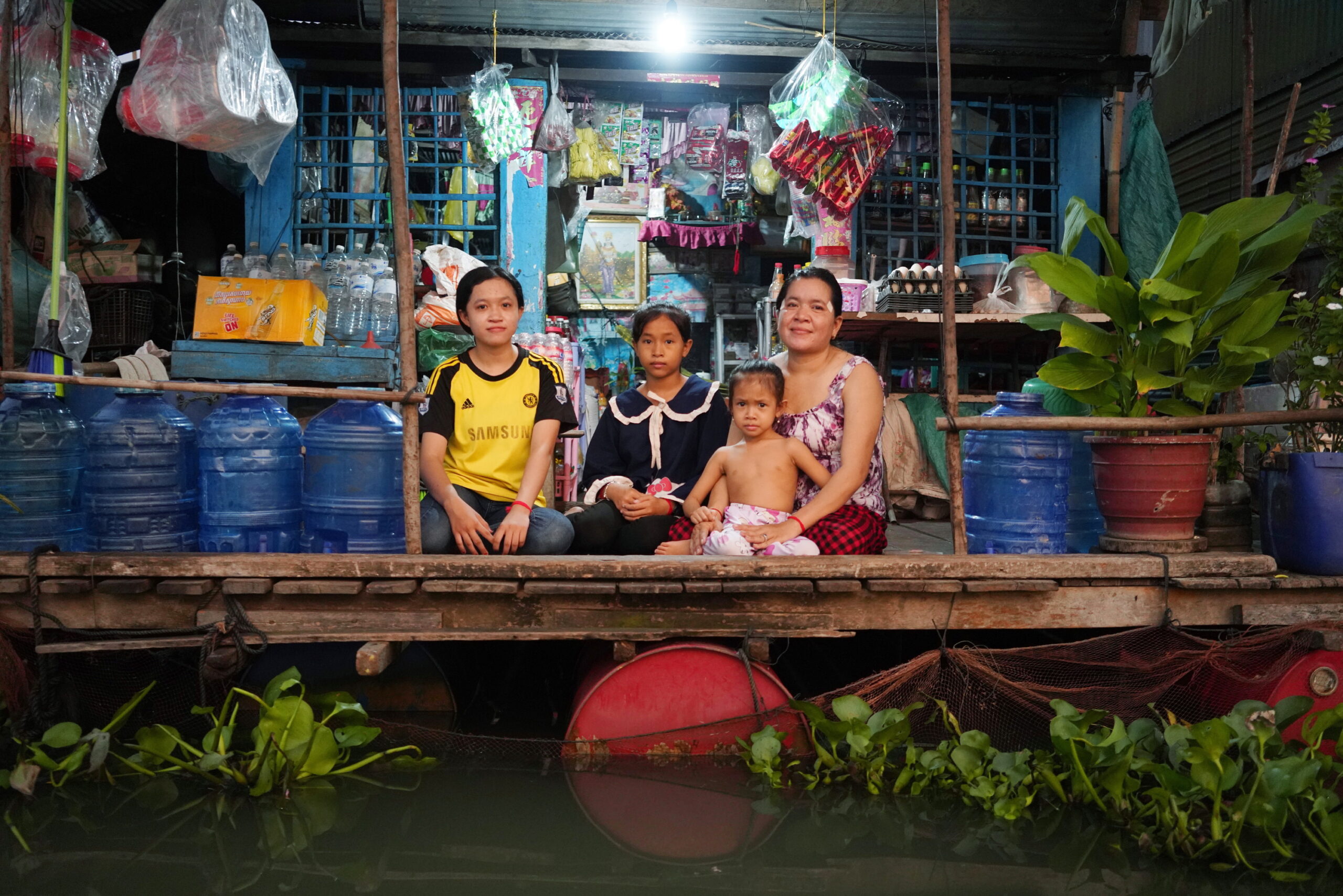
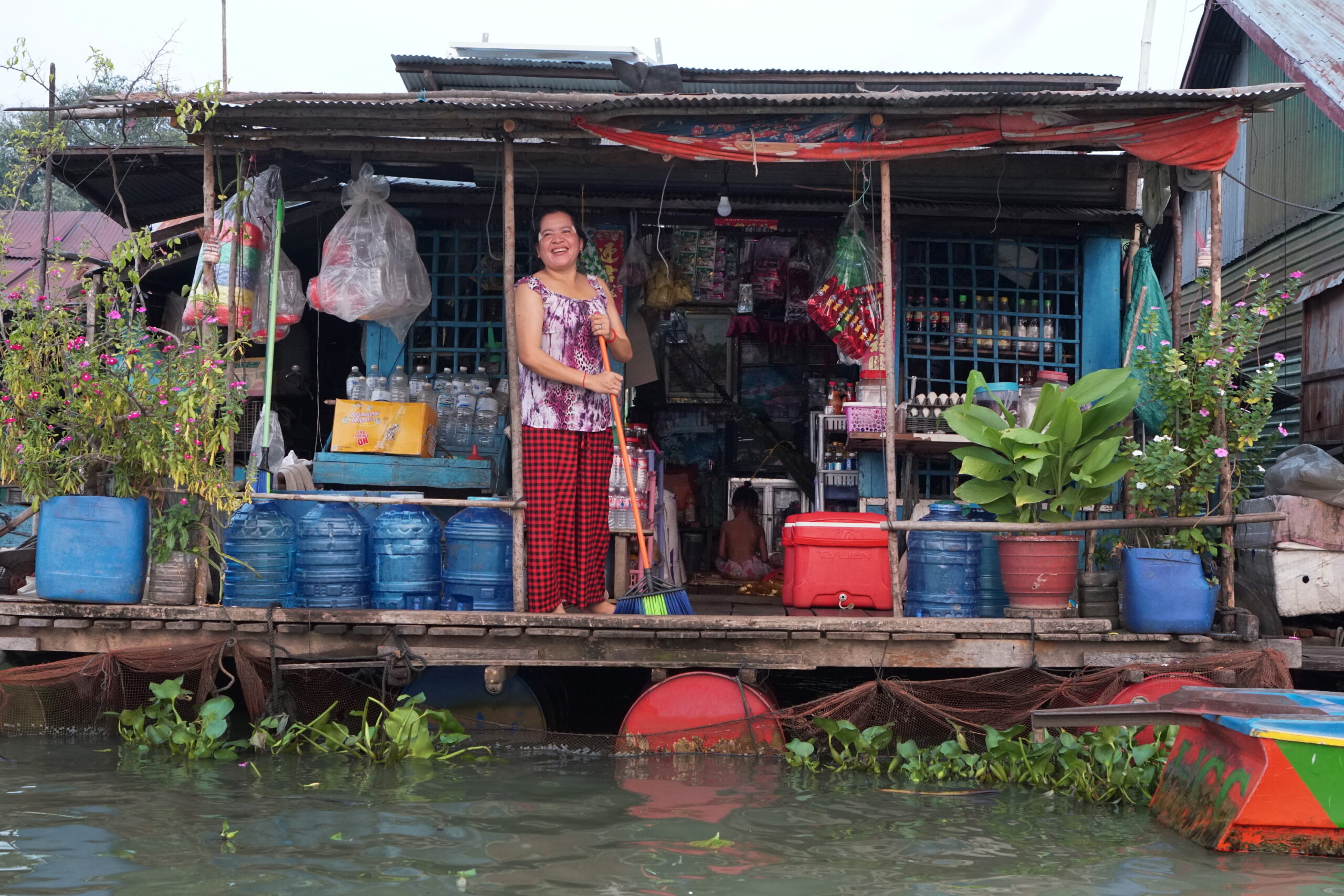
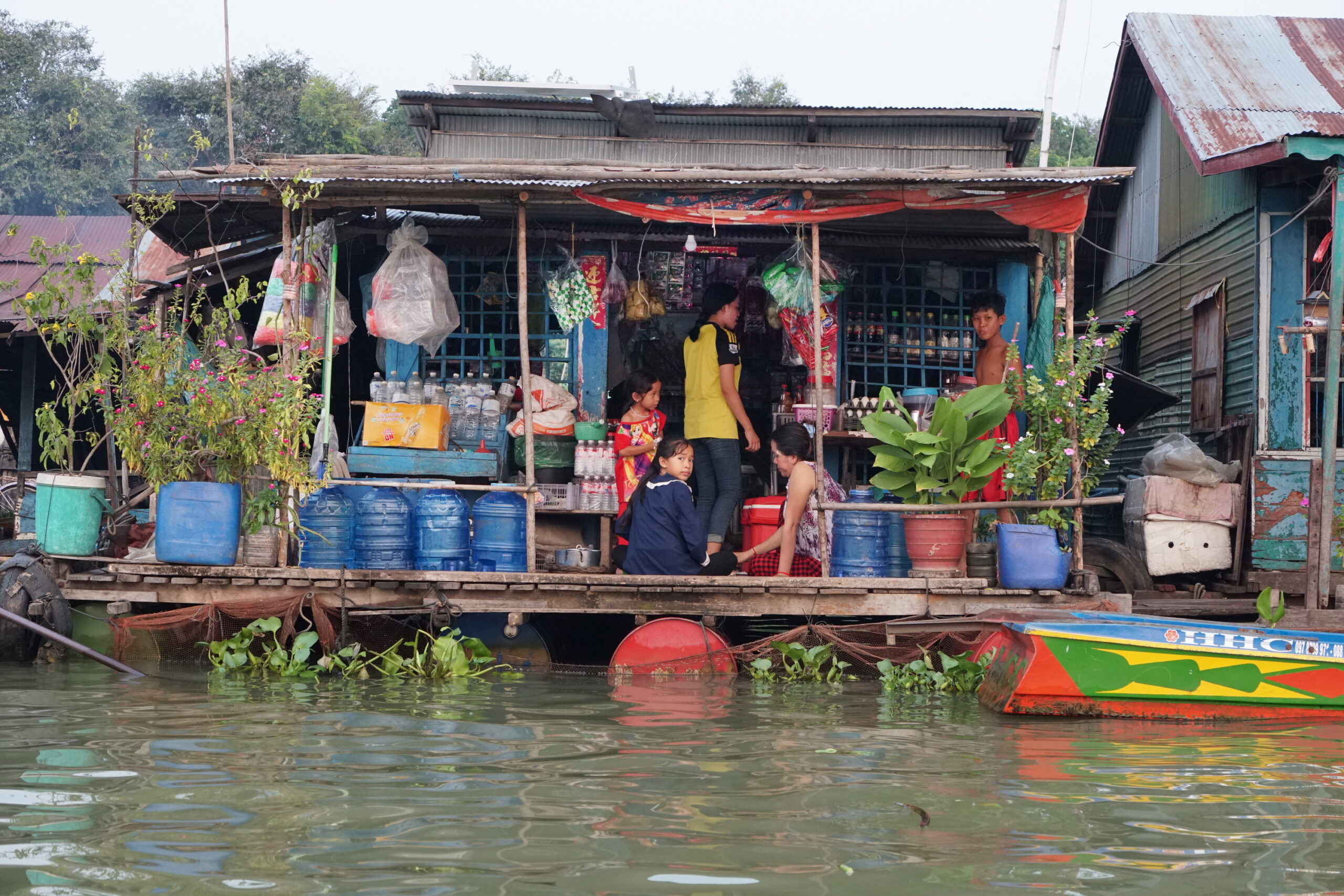
In Prek Toal, Hang Sreymom and three of her four kids sit for a portrait outside the home she turned into a storefront when her husband’s fishing boat was stolen two years ago. After her kids graduate from school, she wants the family to join him in Siem Reap, where he now works as a security guard.
Hang Sreymom recalled the day two years ago when her husband’s boat and all his precious fishing gear was stolen by a group of six men in the forested inlet just a short ride away. As she spoke, she scurried around the porch of her house nestled on the Prek Toal riverbank, adjusting the potted plants above the reinforced barrels that kept it afloat.
Her husband had stumbled toward the rowboat he kept hidden in the forest. When he called to tell her, “I wanted to cry,” she said. “But I couldn’t cry.”
Instead, she turned their home into a storefront, selling crushed ice with syrup, eggs, chips and other household essentials to families on either side who balance on wooden boards to spring between the floating structures.
The stress of living on the water – from diminishing fish supplies to police pressure to ‘pirates’ stealing boats – had hardened Sreymom’s resolve to join her husband in Siem Reap, where he worked as a security guard. She thumbed through the laminated edges of a wedding album. “I’ll just be happy for the family to be together,” she said.
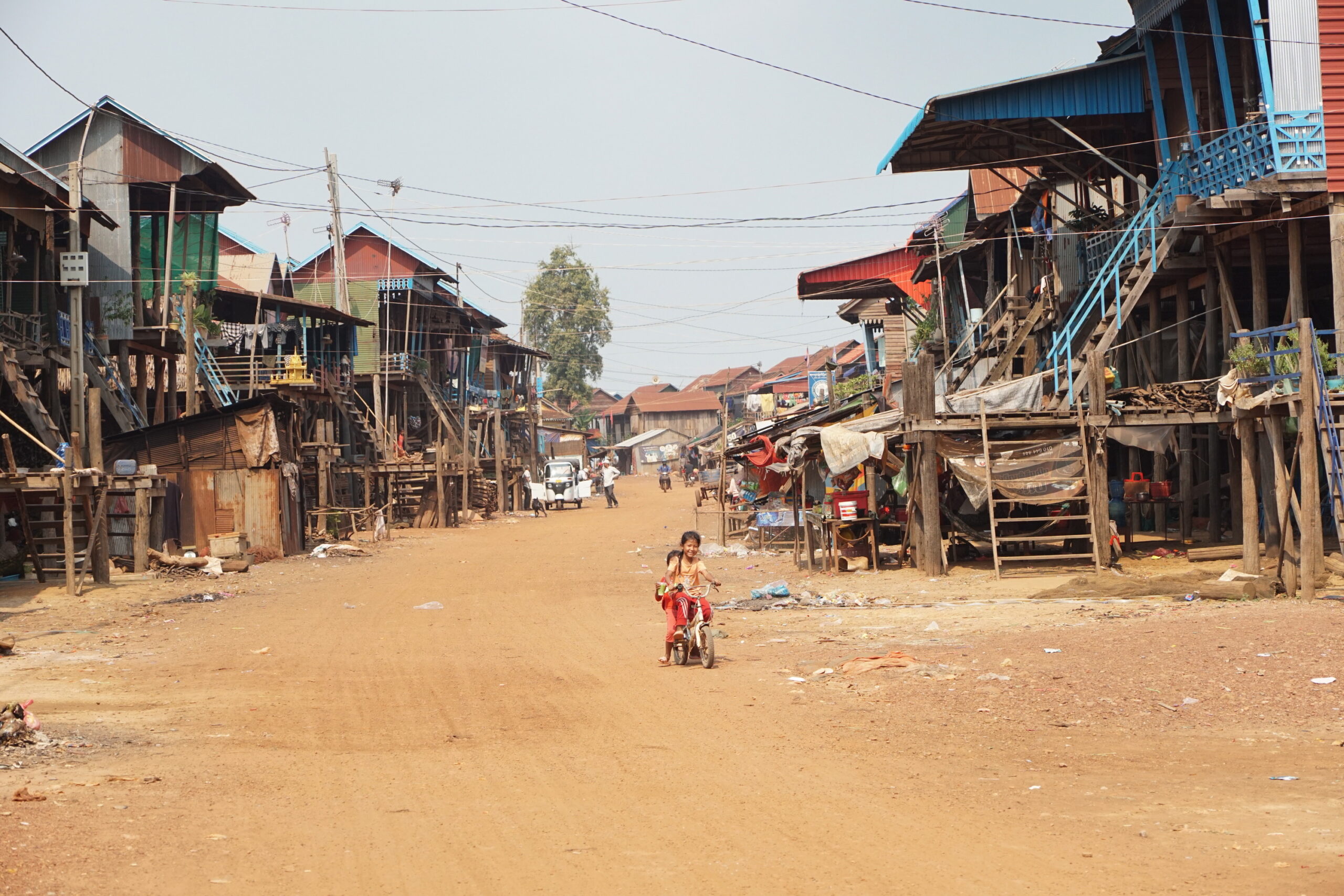
In the stilted village of Kompong Khleang, the winding streets were almost empty in mid-April except for the occasional whir of a motorbike and a mechanical, recorded announcement from a cart selling snails. A man took a nap in a military-patterned hammock behind them, his arm behind his head.
Two weeks earlier, authorities wielding guns warned residents against fishing in the water inlets threading through the village, according to multiple residents who did not want to share their names for fear of repercussions. All along the roadside, nets that had been deemed illegal for their fine mesh or size lay strewn on the ground.
As she sorted vegetables and fish into red and silver bowls for lunch in the awning in front of her house, dividing Coke and Sprite into cups, a woman said the combination of declining fish populations and the police crackdown led Kompong Khleang residents to fish on the far reaches of the lake for days at a time, leaving the village “sgnaat nas,” very quiet.
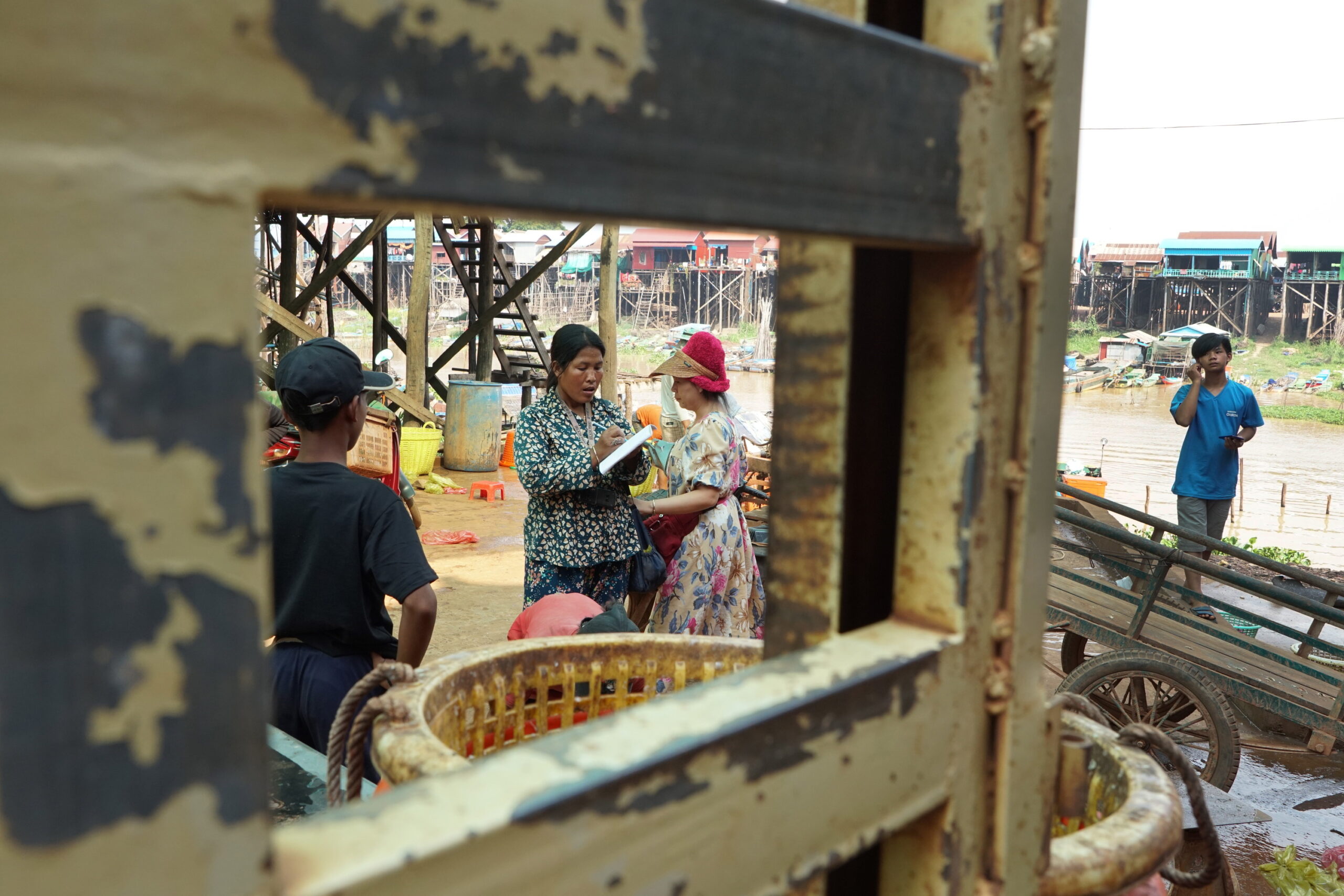
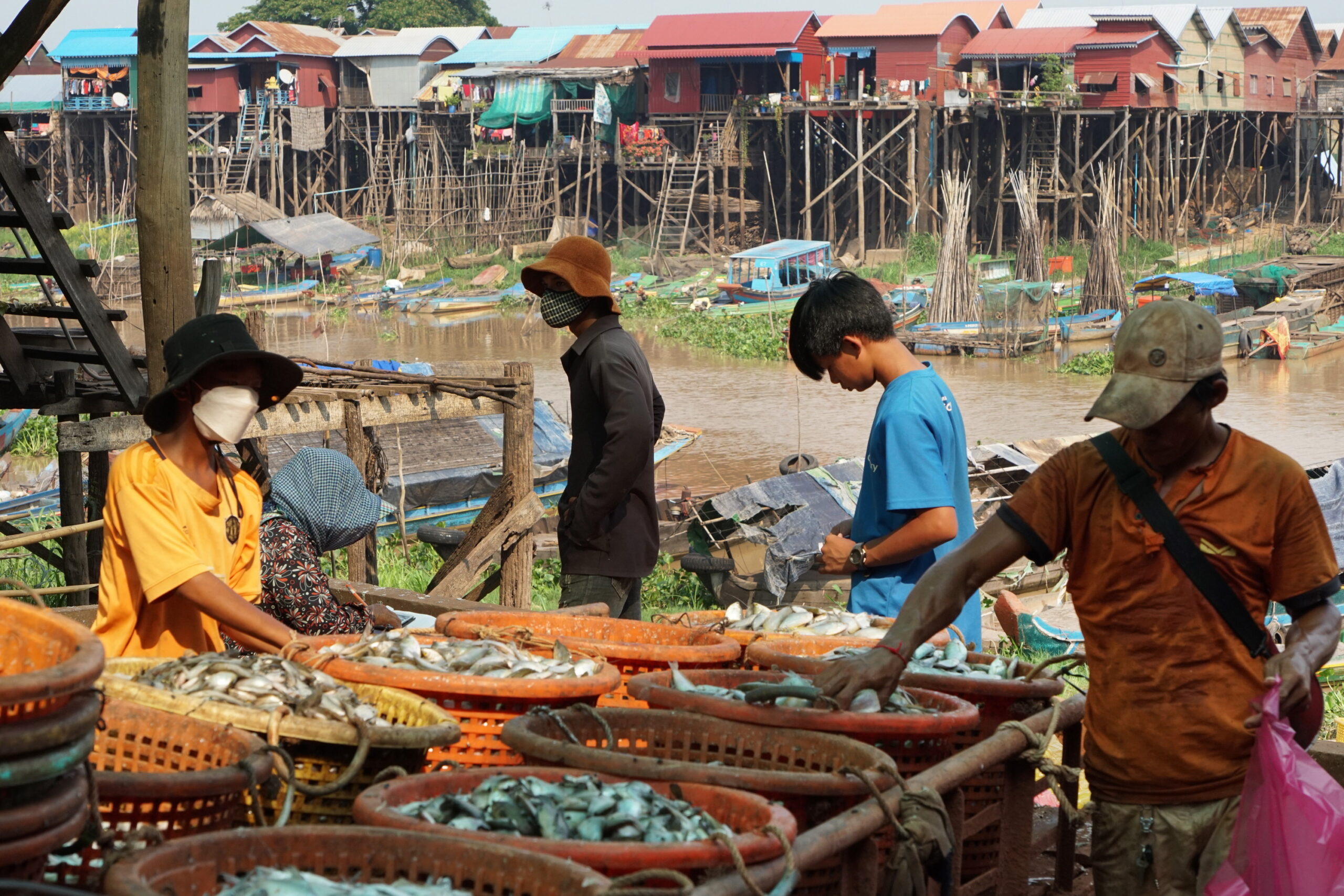
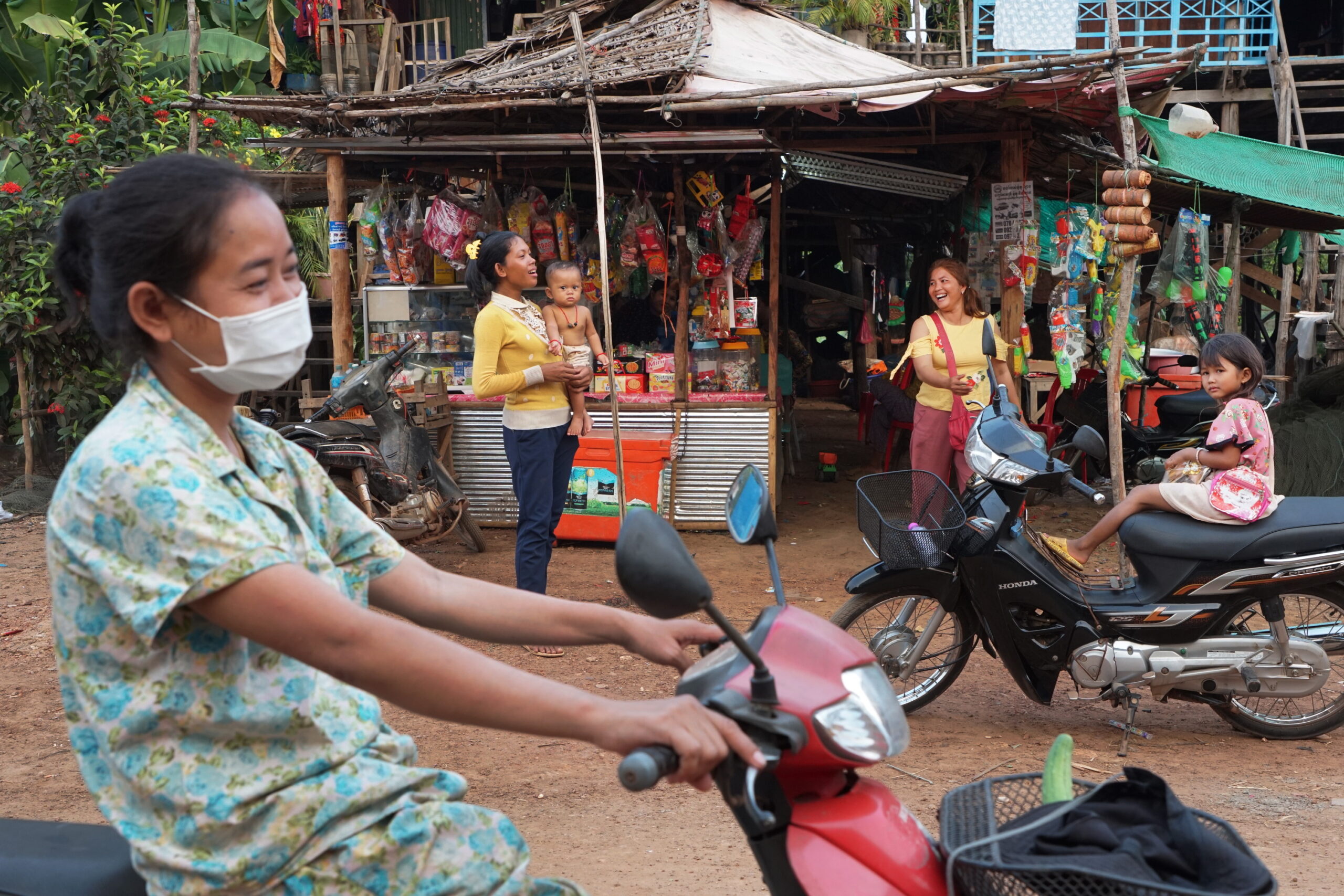
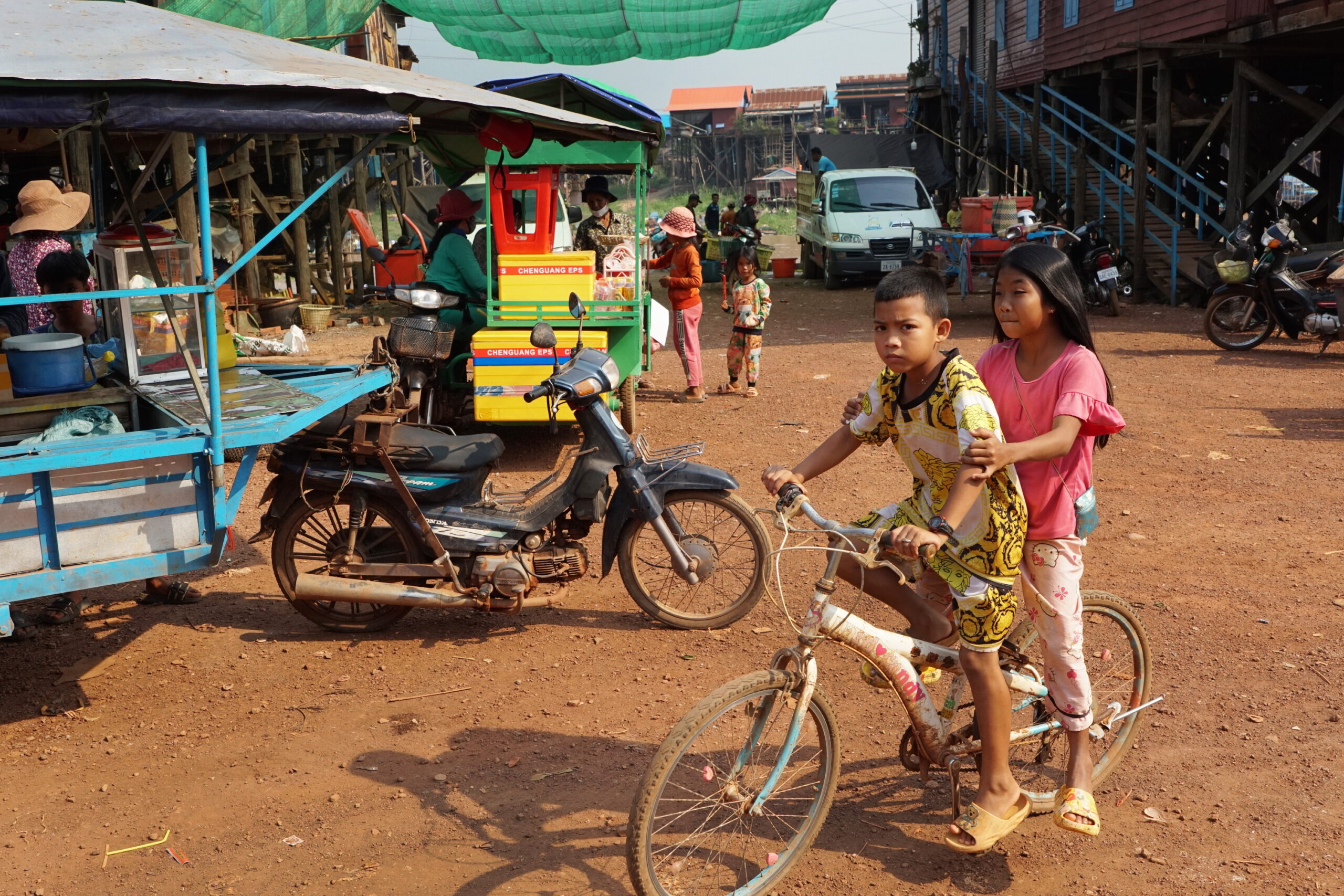
In Kompong Khleang, fish are collected on the quayside with stilt houses visible on the other bank of the river. Across from the pagoda, Reorng Longdy, 32, rests on her moto for a moment outside a store selling snacks and trinkets while Tor Sokhea, 25, holds her baby before walking back to her house a few hundred meters away.
Another woman said she was of two minds: Angry about the sudden crackdown’s effects on the fraying community but also angry at those who use electric prods or illegal nets.




A poster near the entrance of Kompong Phluk details the many species of fish found in the Tonle Sap, which number at least 149, according to the Wildlife Conservation Society. On the quayside, fishermen and women in Kompong Khleang sort and weigh the daily catch.
“The next generation of people won’t even know the names of all the fish we had here,” she said.




Som Hour, the abbot of the sprawling pagoda in Kompong Khleang, stands for a portrait, then with other monks, near the wooden stairs down to the roadway. Hour was a fisherman as a young man and believes that the crackdown on illegal fishing is one of many tactics needed to help reinvigorate the lake. A tourist boat (top left) sits on the dry riverbank, looking up at the Golden Buddha of a pagoda.
Even 20 years ago, fishermen like Som Hour were using oversized, fine-mesh nets, said the 64-year-old who also served as the head abbott of the red-and-white crested pagoda overlooking the curving river at the base of Kompong Khleang.
He has watched the community’s spending power and mood shift yearly and monthly depending on fish populations, he said. The setting sun made reflections between boats arriving at the base of the river, their crews jumping on and off to haul fish and prawns to be weighed and ferried away on trucks.
But overall, he said, fishing supplies have hit lows of “nearly nothing” compared to 20 years ago – a reality for which he blames not only overfishing but also mass deforestation and environmental degradation.
With lower fish supplies, more people resort to illegal fishing, which only worsens the problem. “It’s hard for fishermen who can’t find fish, and they’re not happy about it,” Hour said of the recent crackdown. “The policy is good for future generations.”
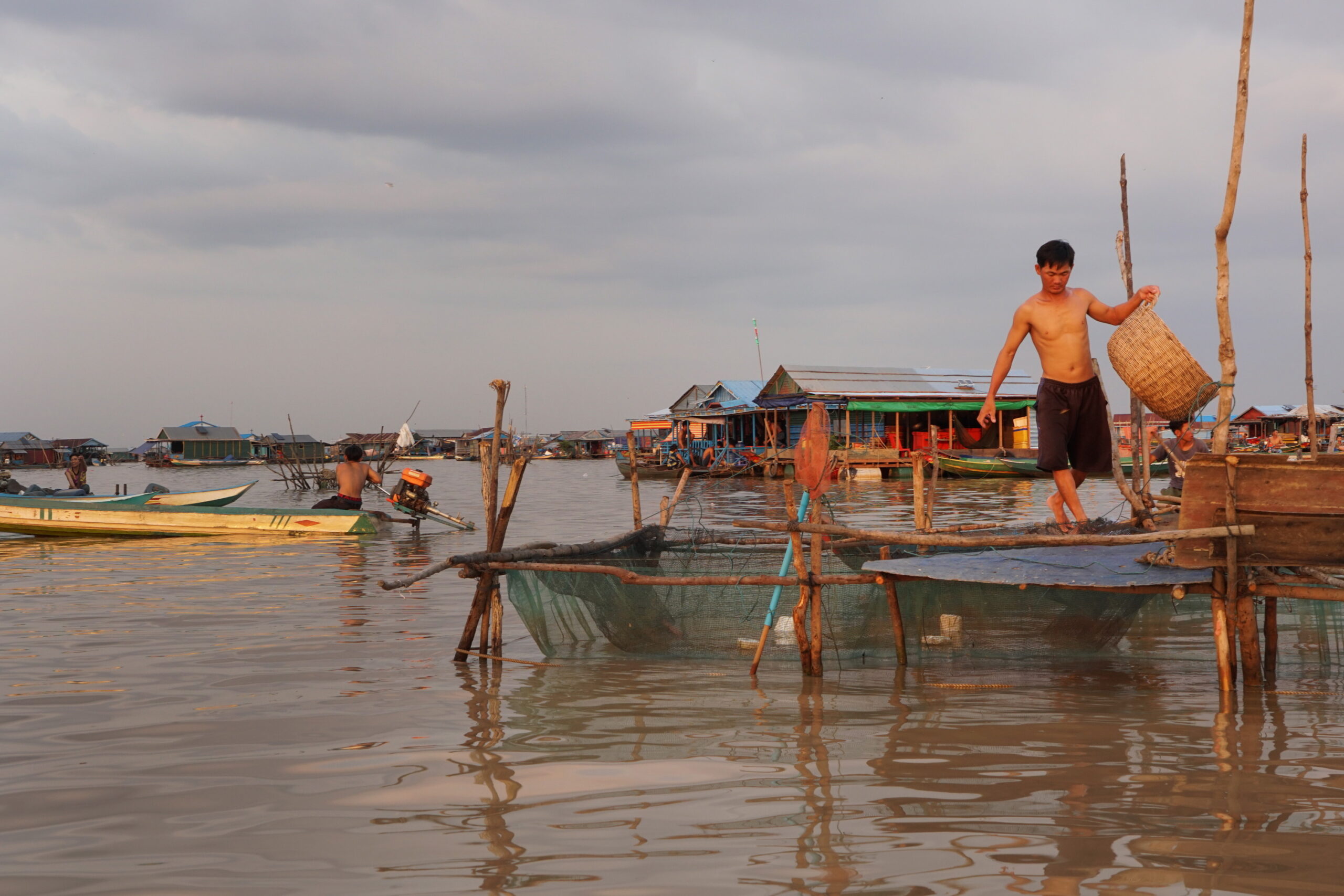
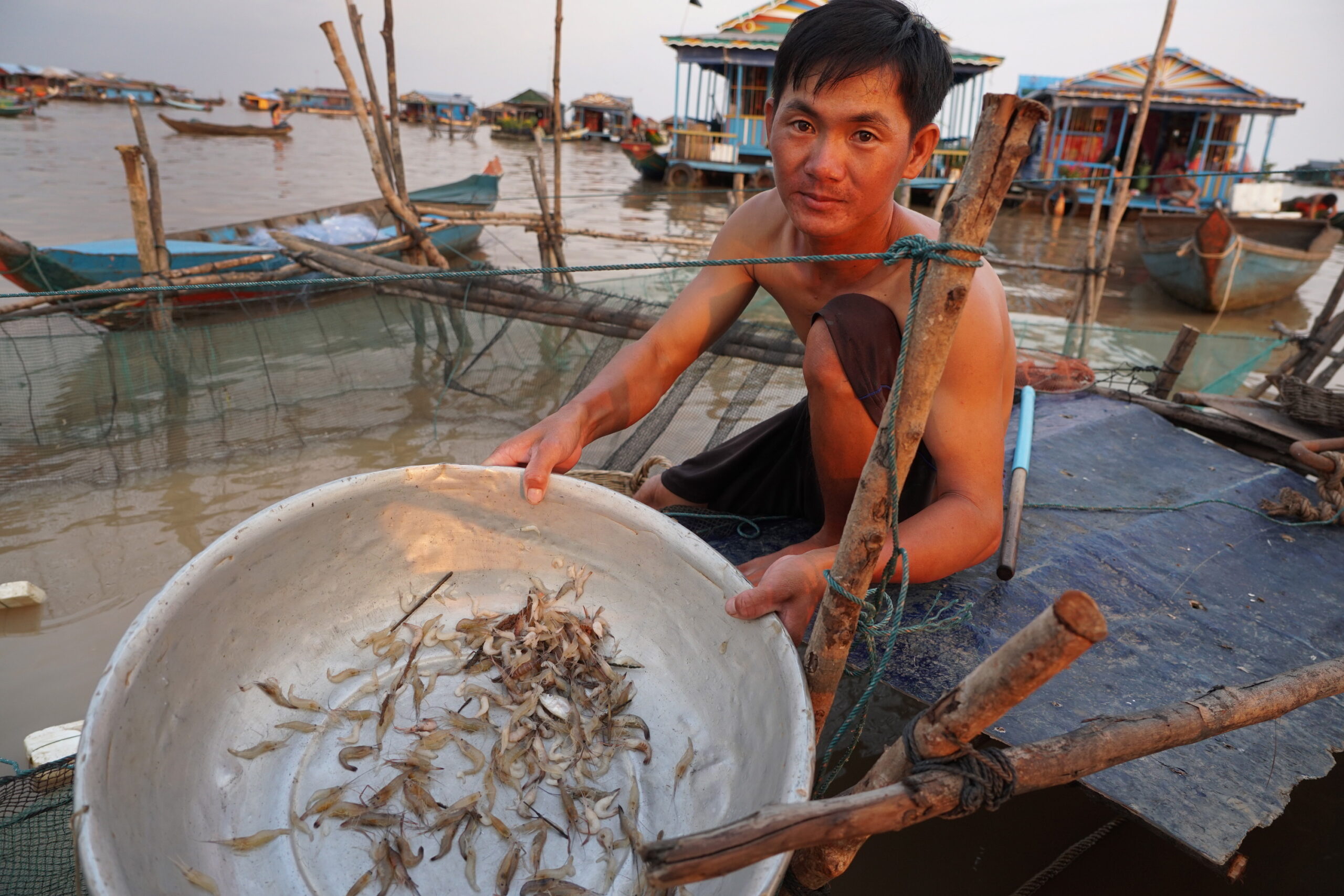
Back in Chong Khneas, 25-year-old Young, who goes by one name, swept shrimps into a large bucket in the waning afternoon light as he spoke of the many community members who fled in previous weeks. He and his neighbours were bracing for another visit from authorities.
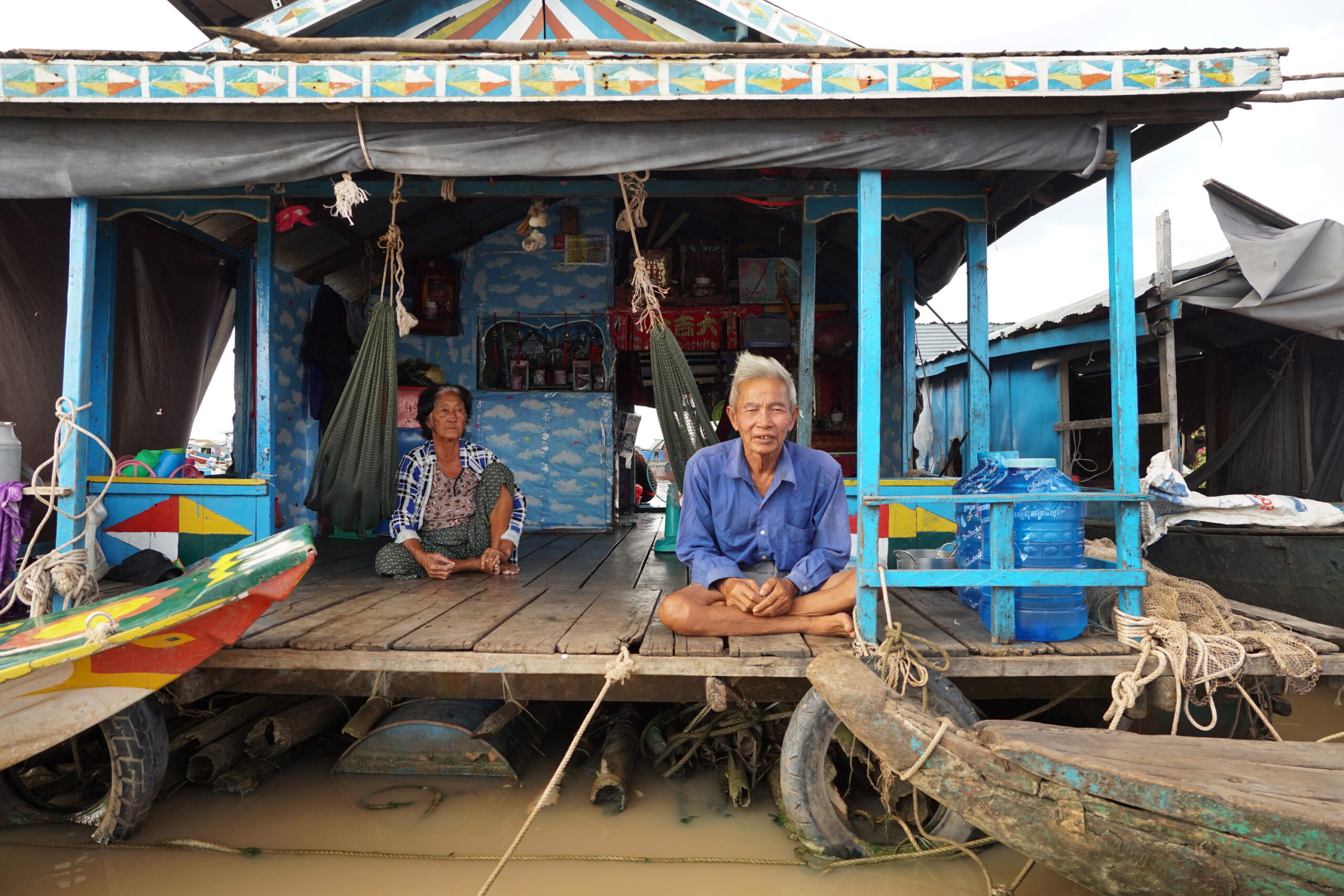
Veang Khim, 74, and his 73-year-old wife, Phang Chhilo, have lived for yoo, decades, in the wood-slatted, floating house they share with their son, daughter-in-law and grandson. One of their boats was confiscated in April with no paperwork to document the seizure, they said.
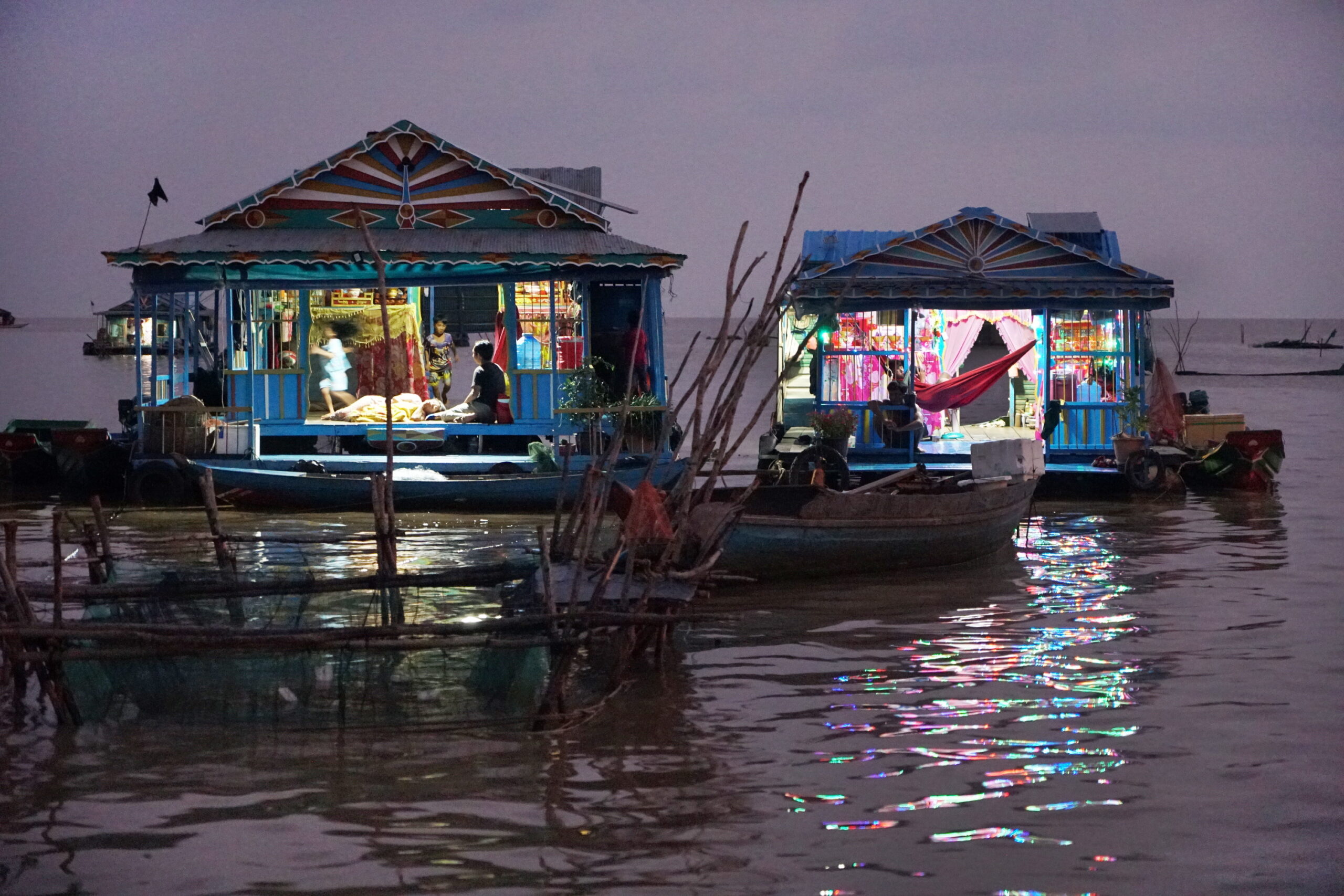
At dusk, the bump of electronic music floated across the village as kids crawled into mosquito tents for bed and parents scrolled on their phones in hammocks, the illuminated homes sending shimmers across the water.
The community had dwindled from approximately 1,000 families during Khim’s childhood to roughly 300, with an exodus of about 100 families in just March and April, he said.
Khim shook his head and laughed at the suggestion of moving, tapping the floorboards with his palm: “My home is Chong Khneas.”
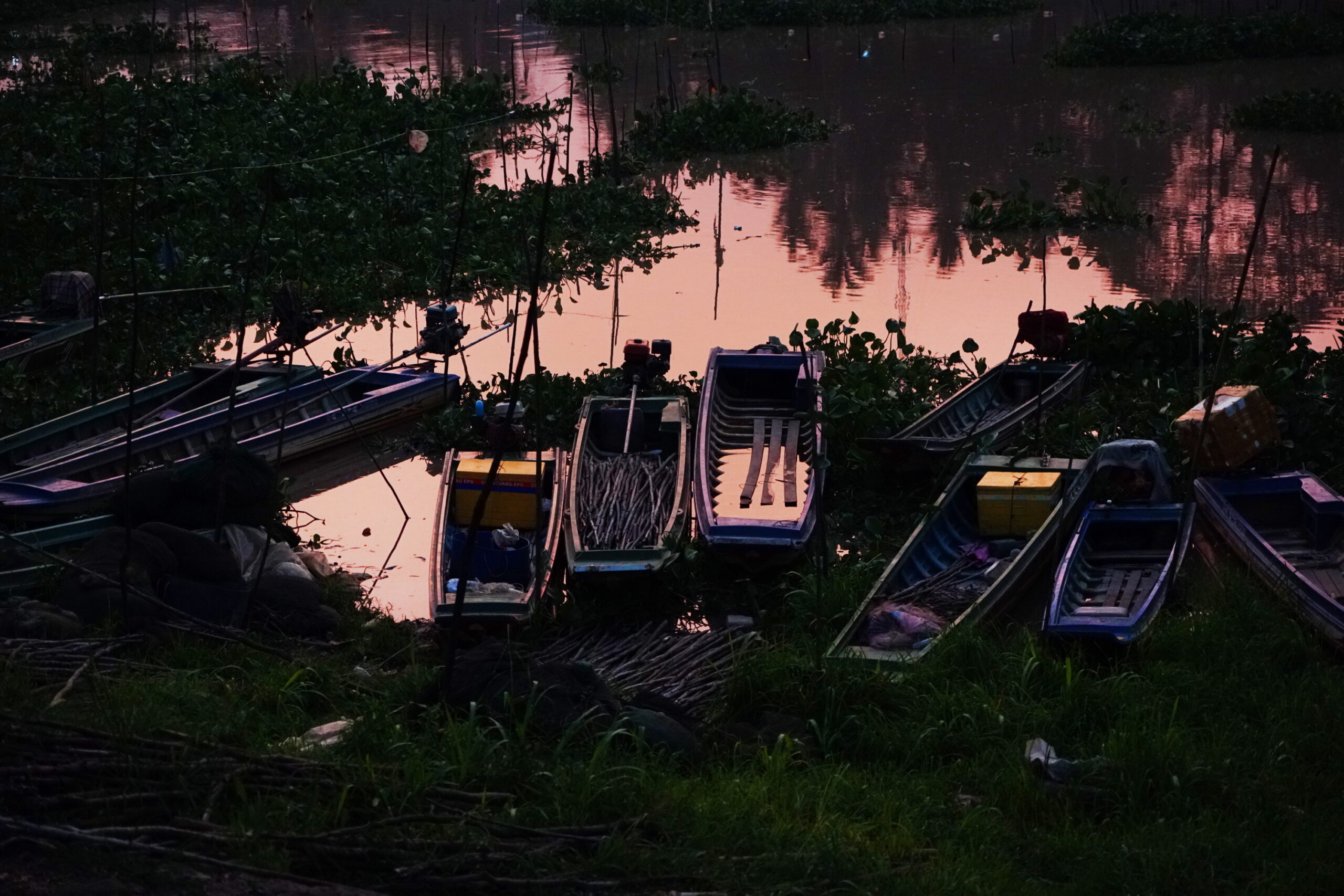
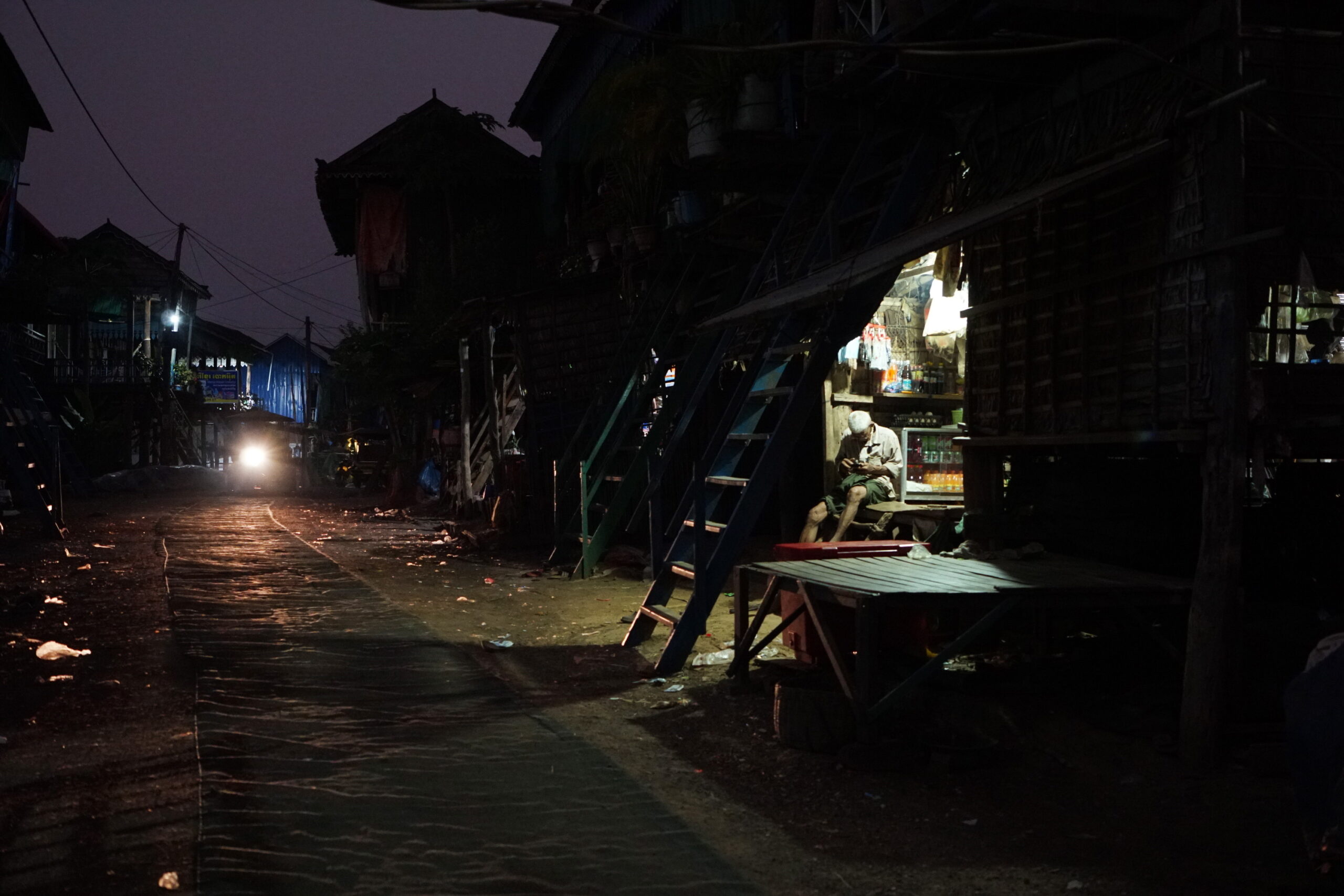
The first part of the two-part series on life and livelihood around the Tonle Sap can be found here.
